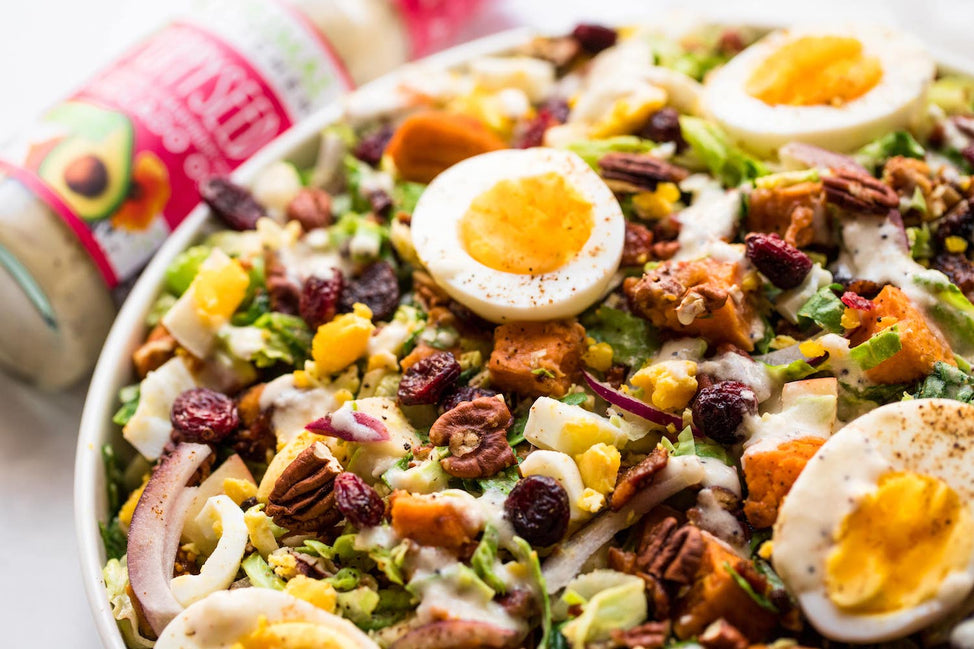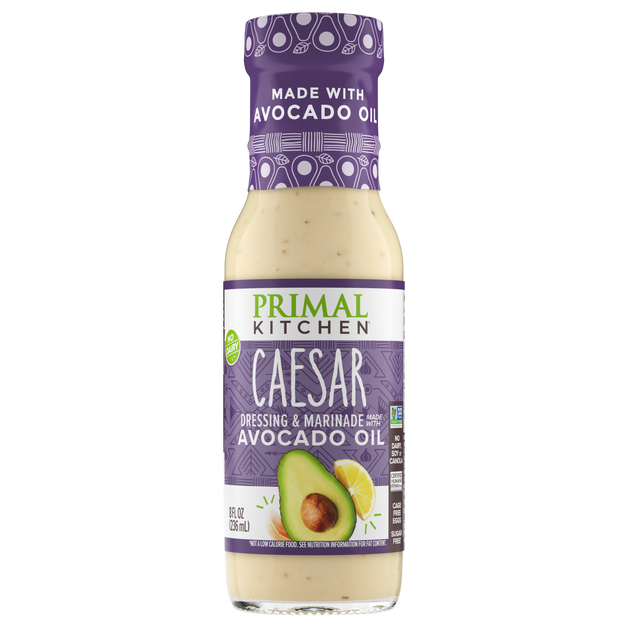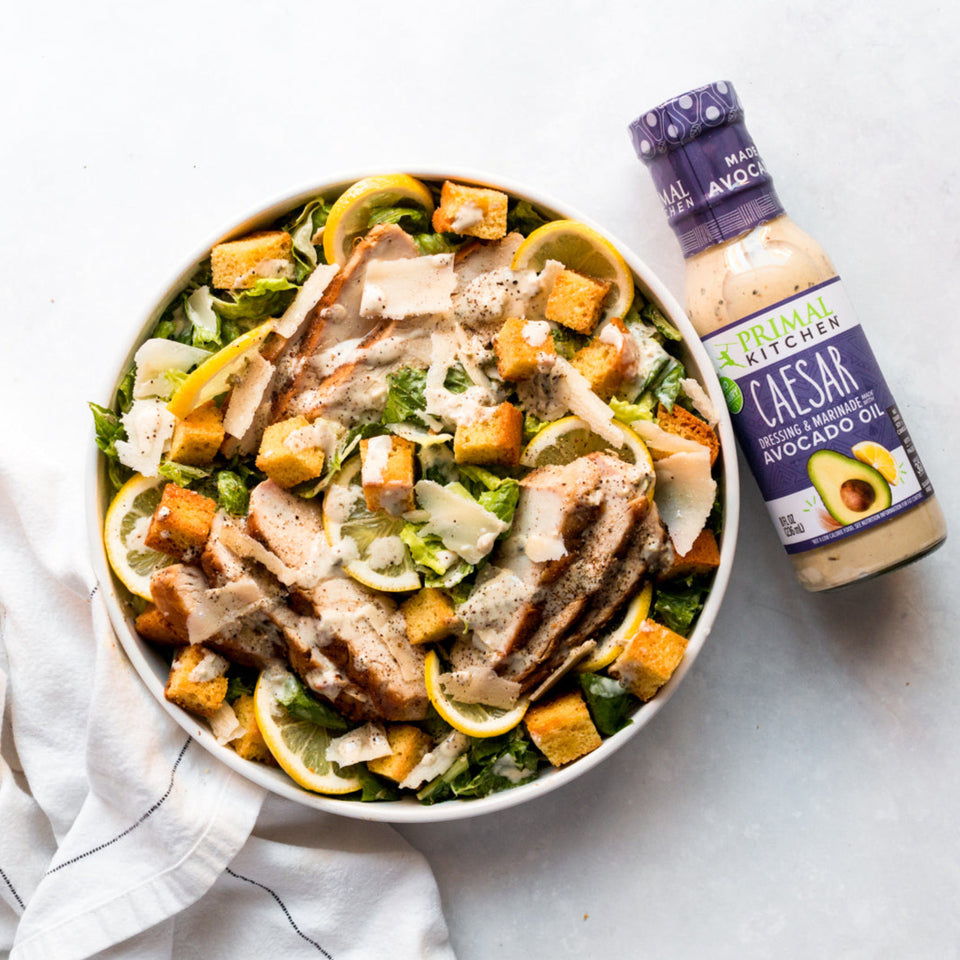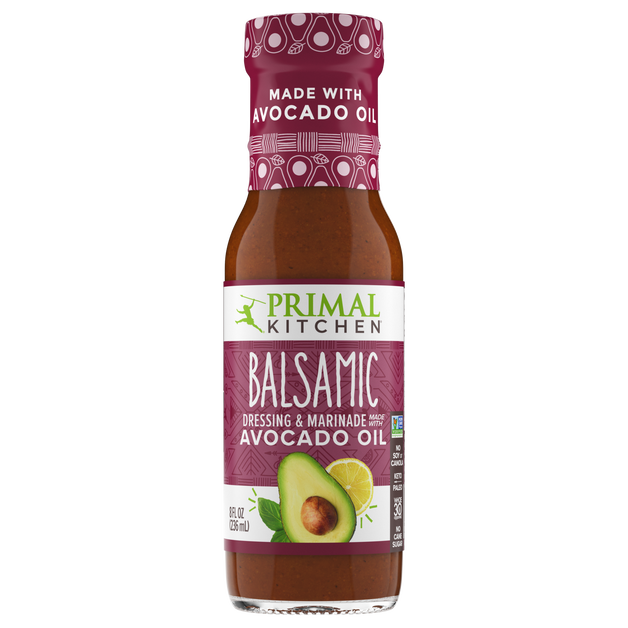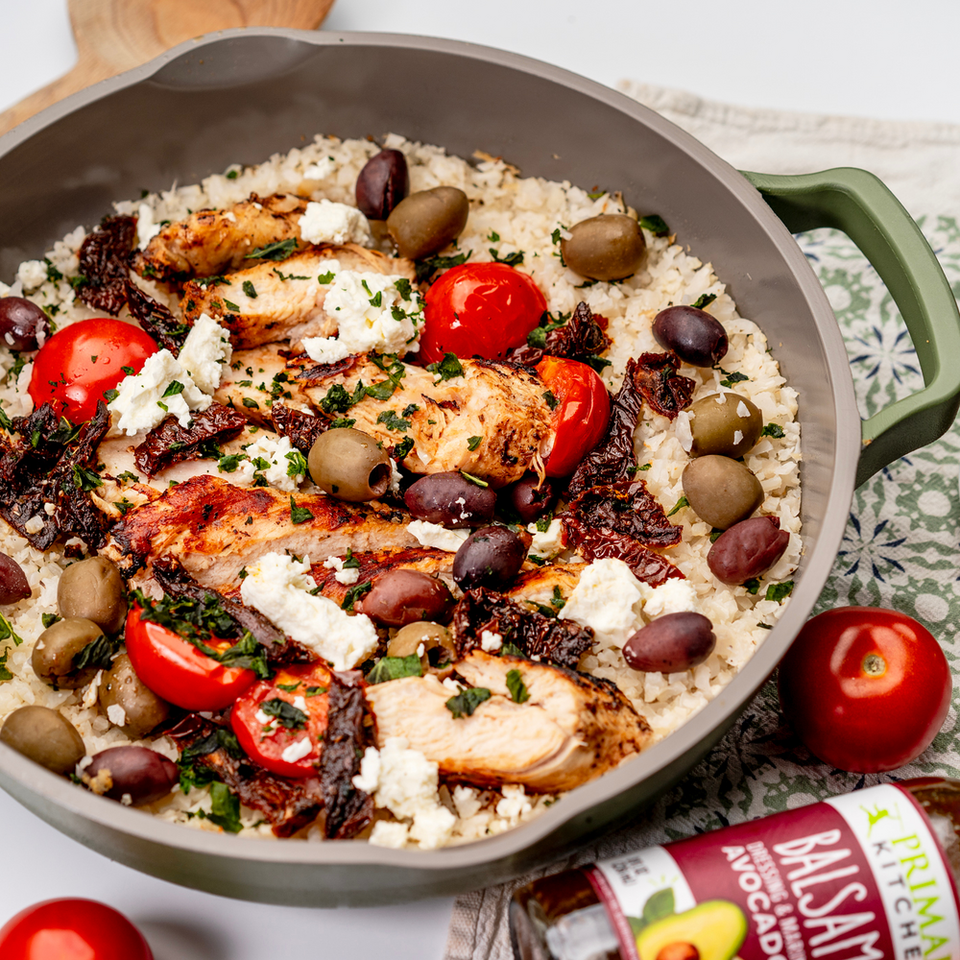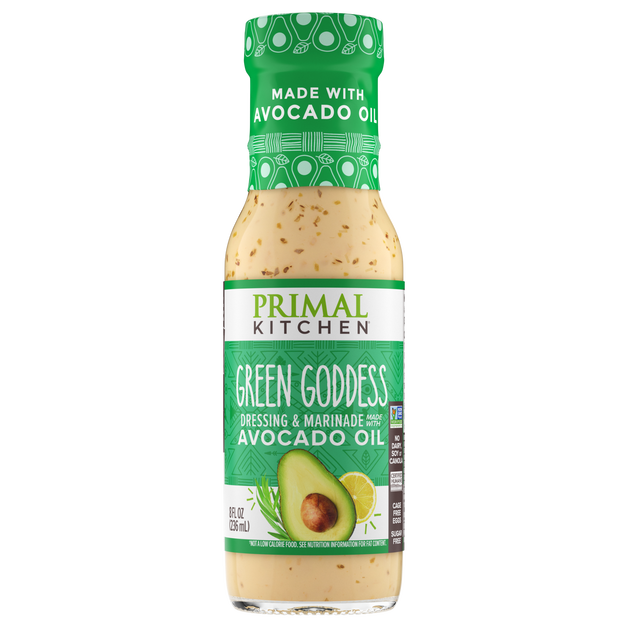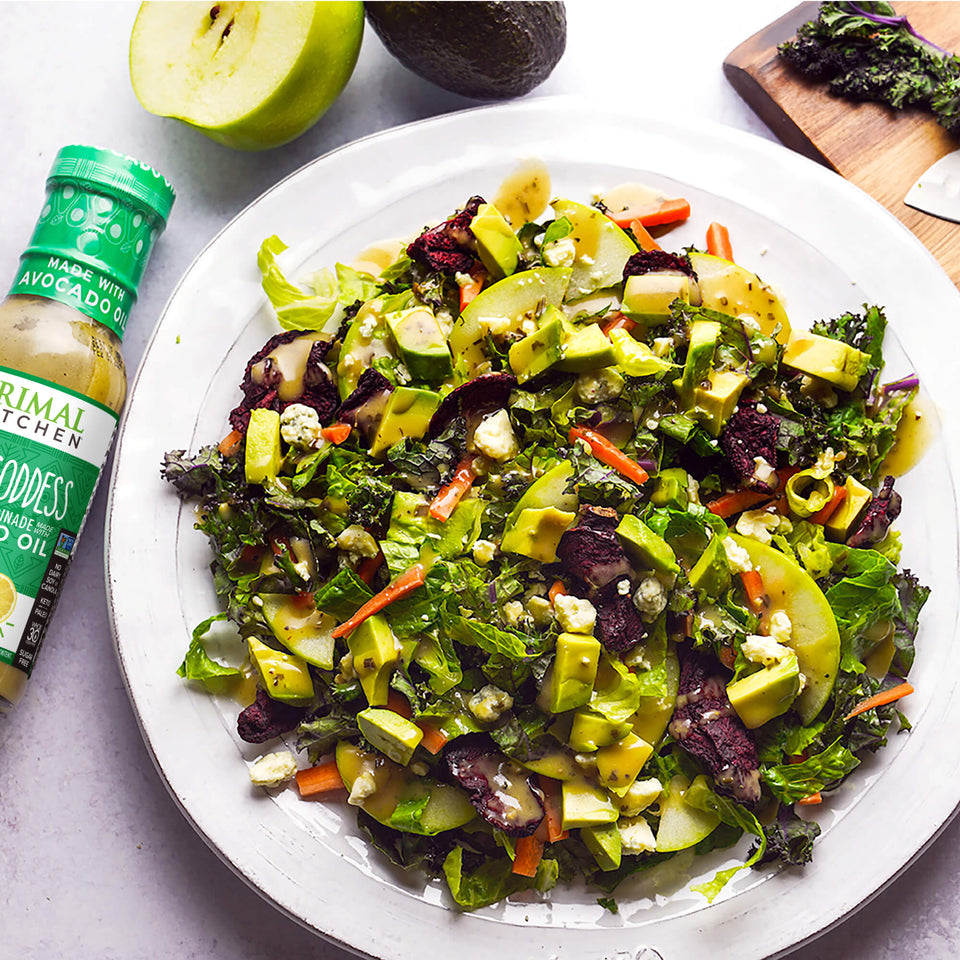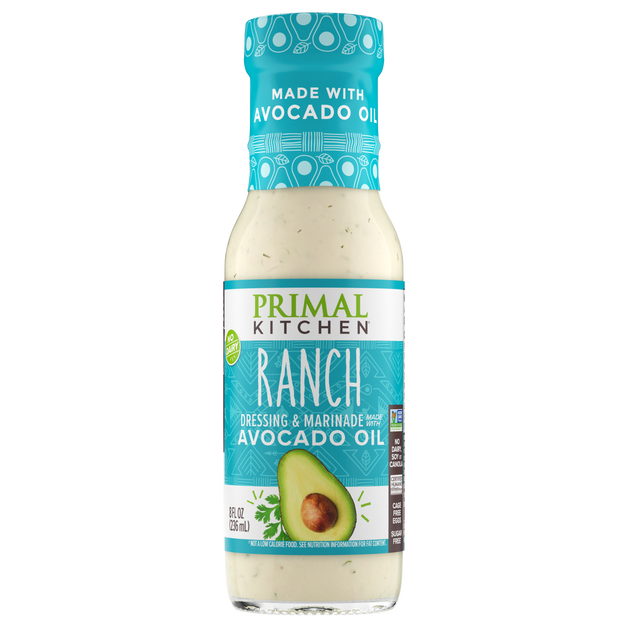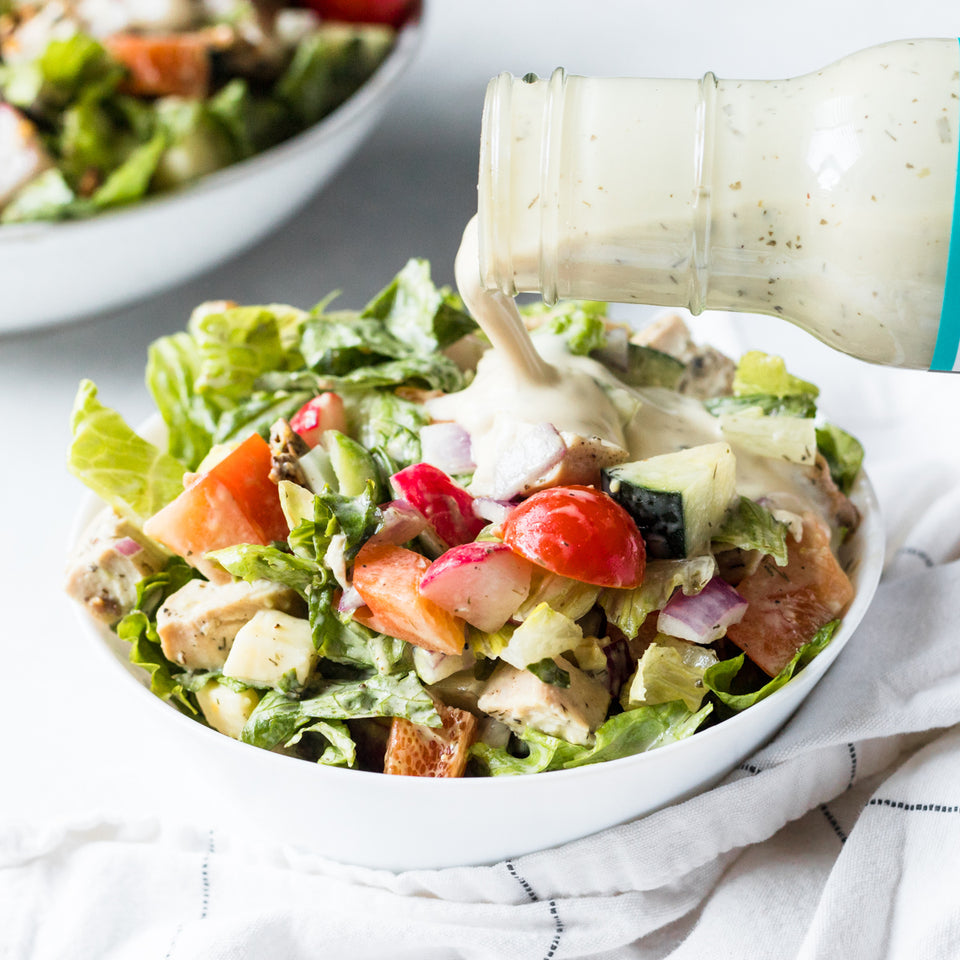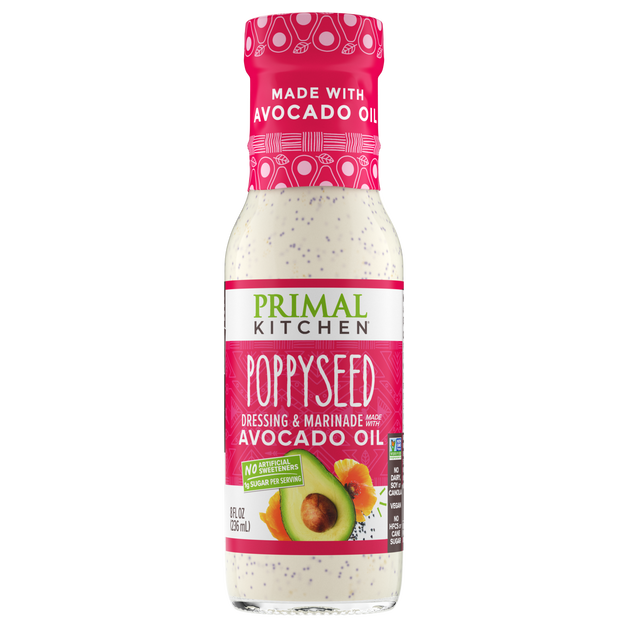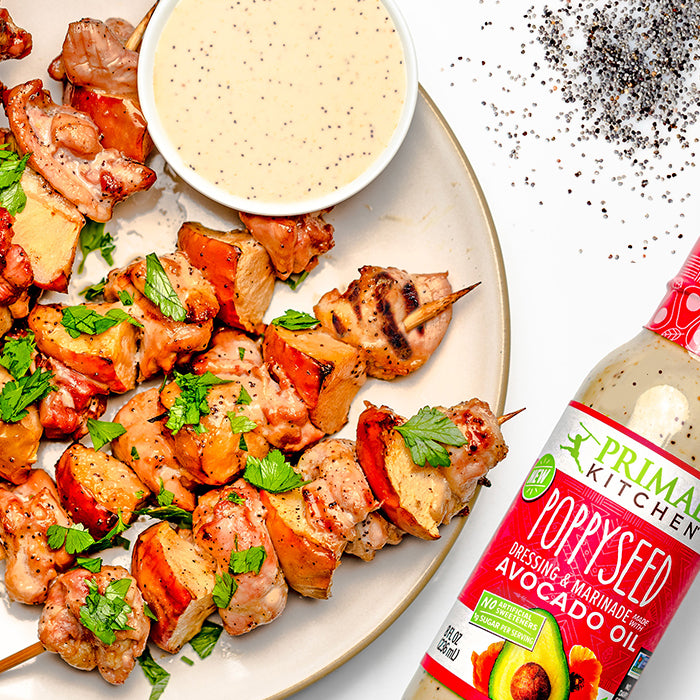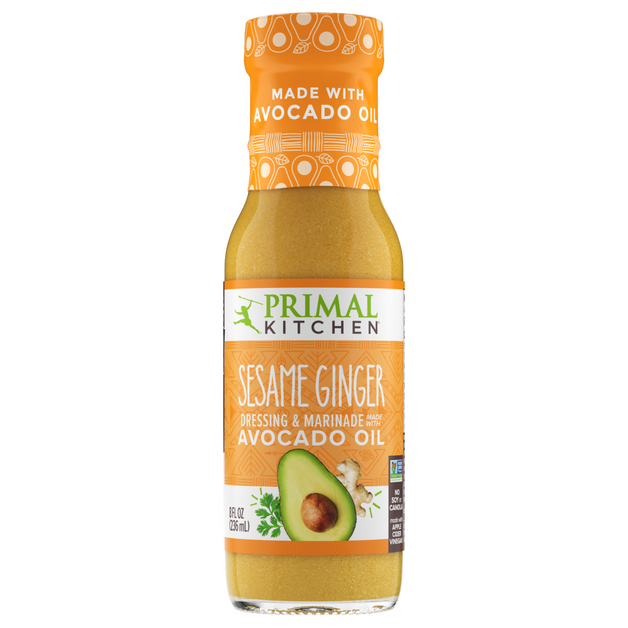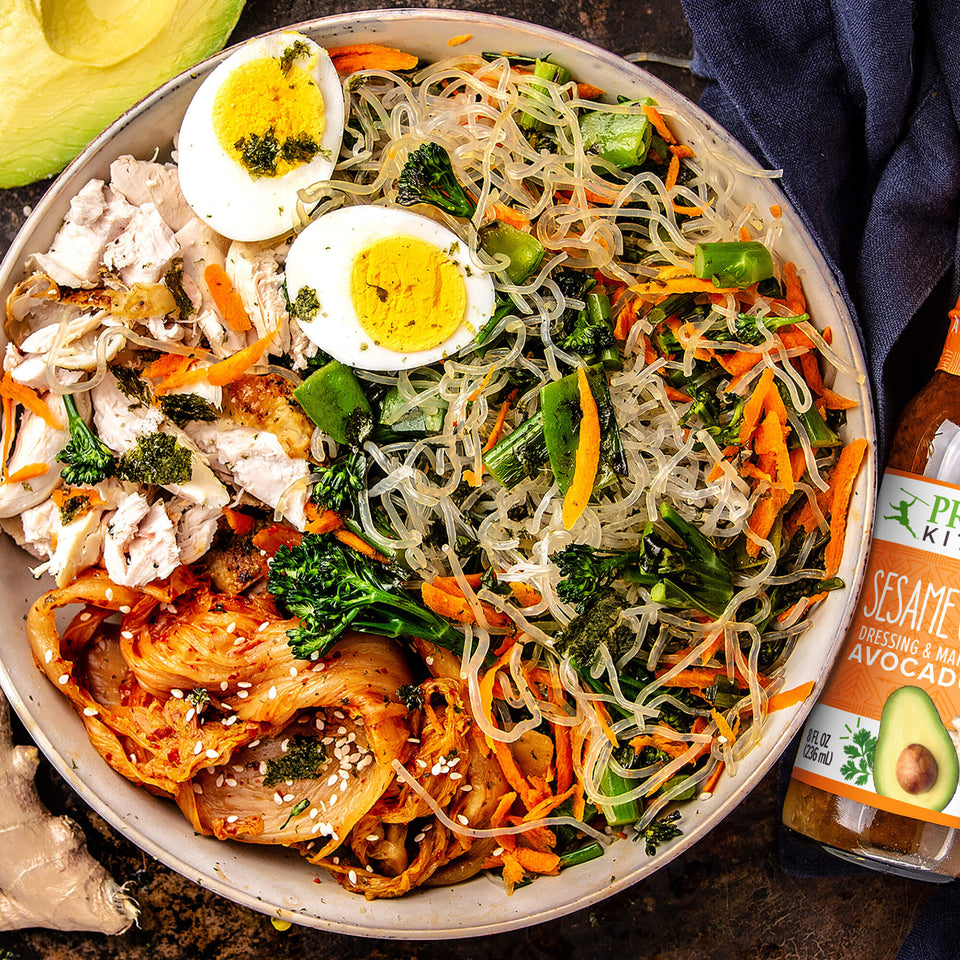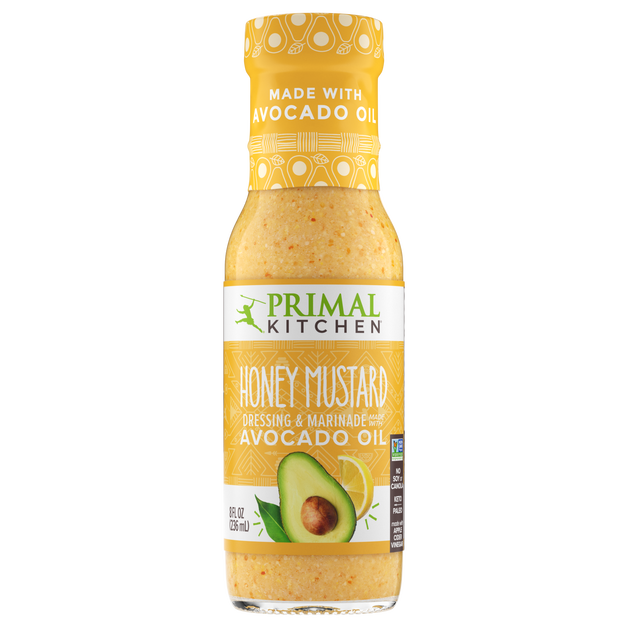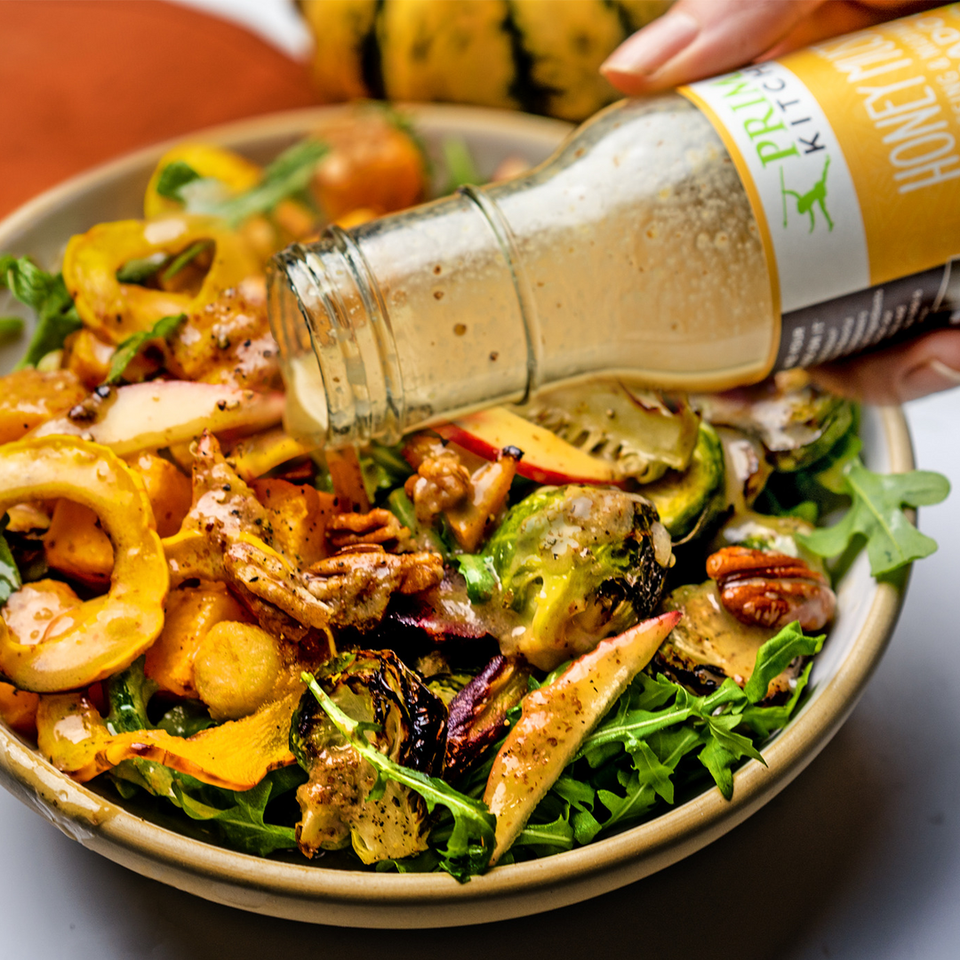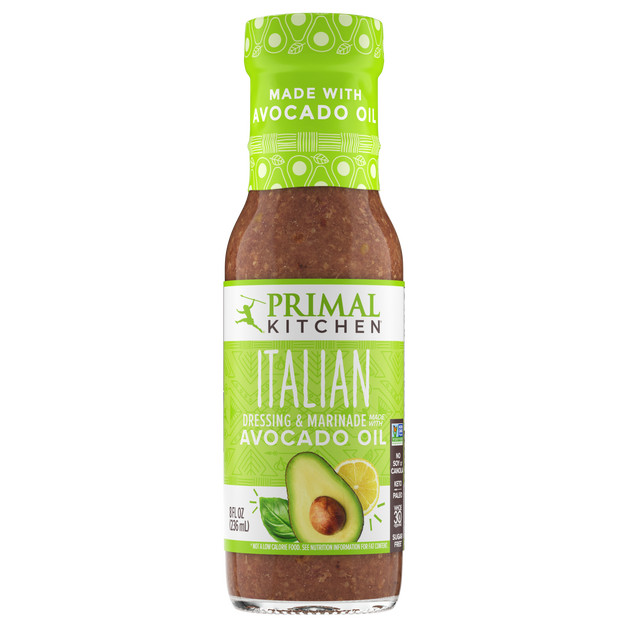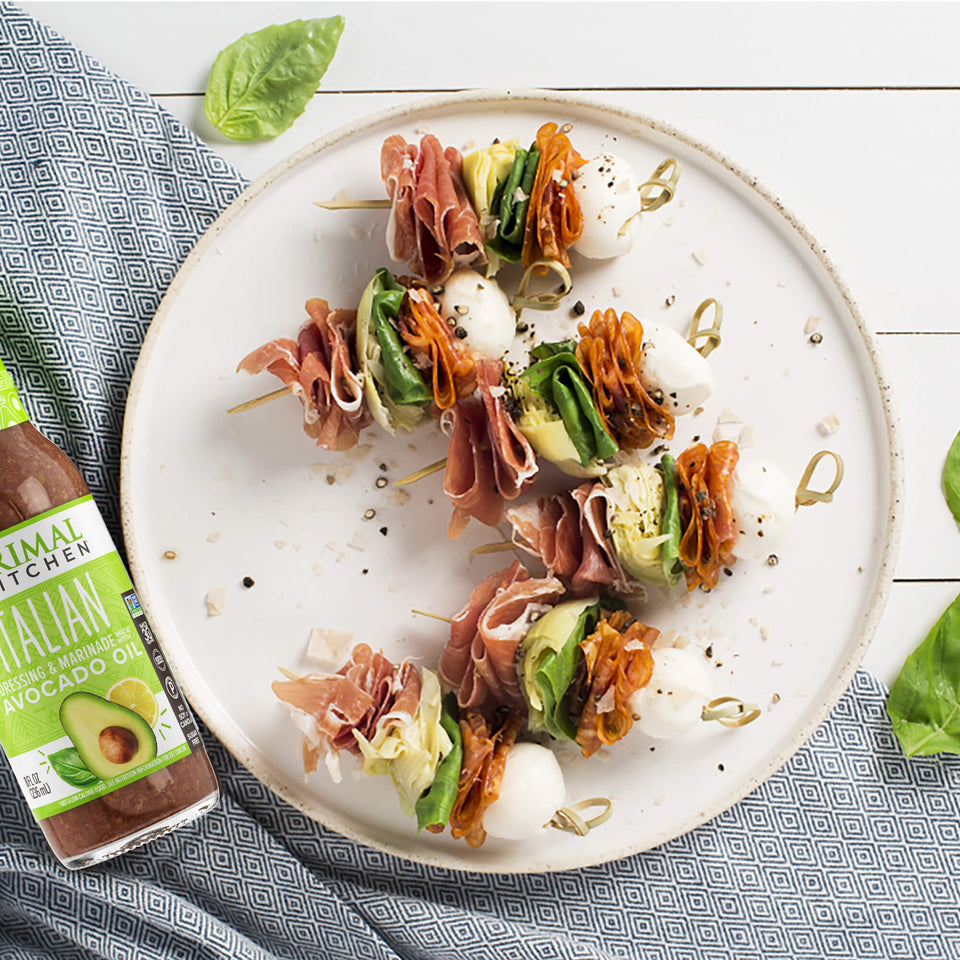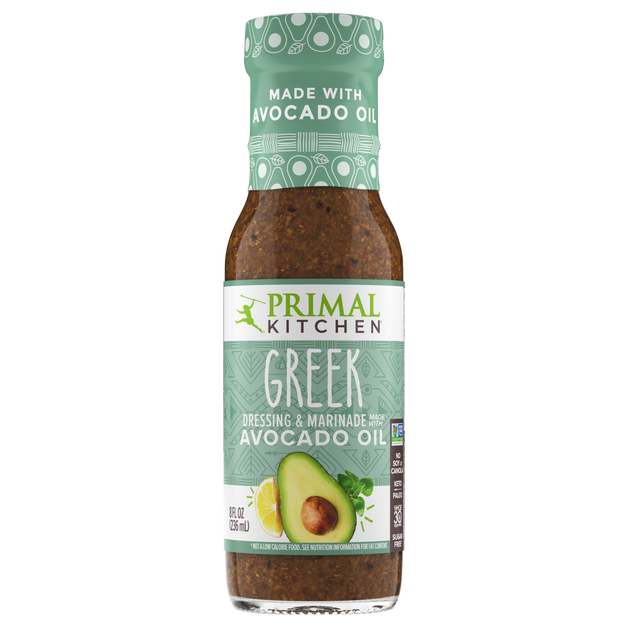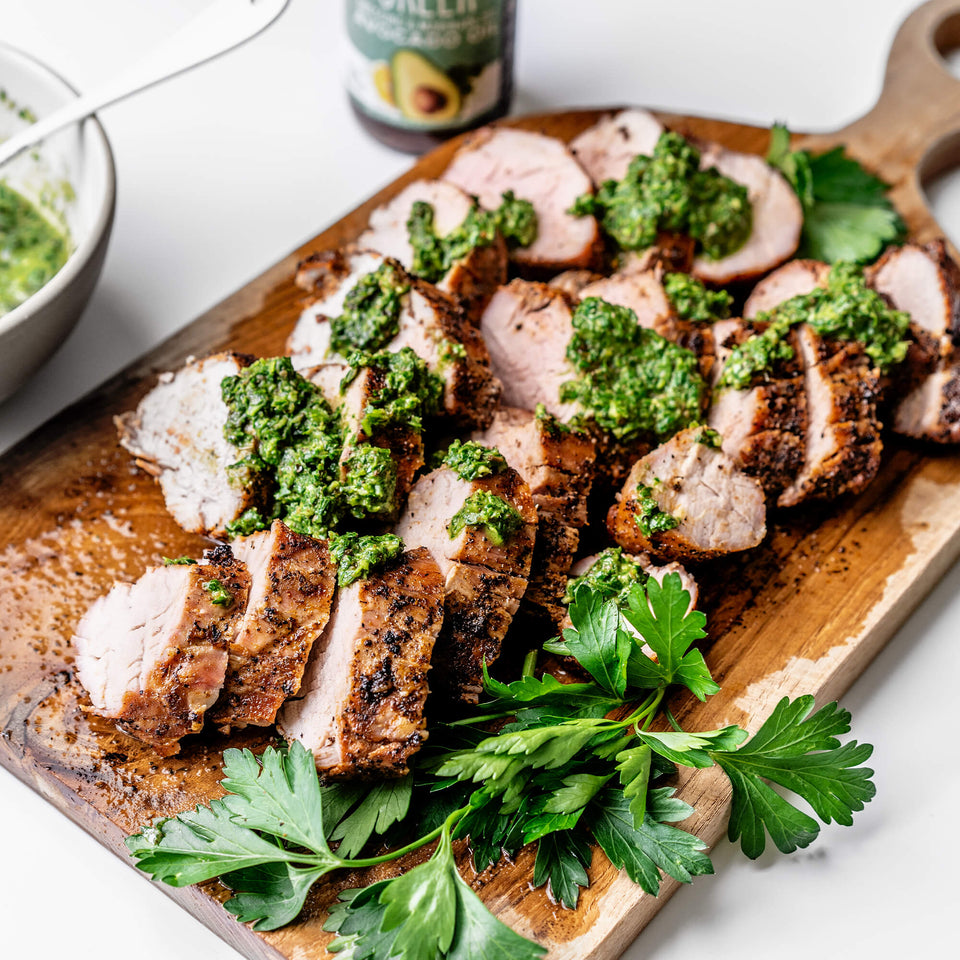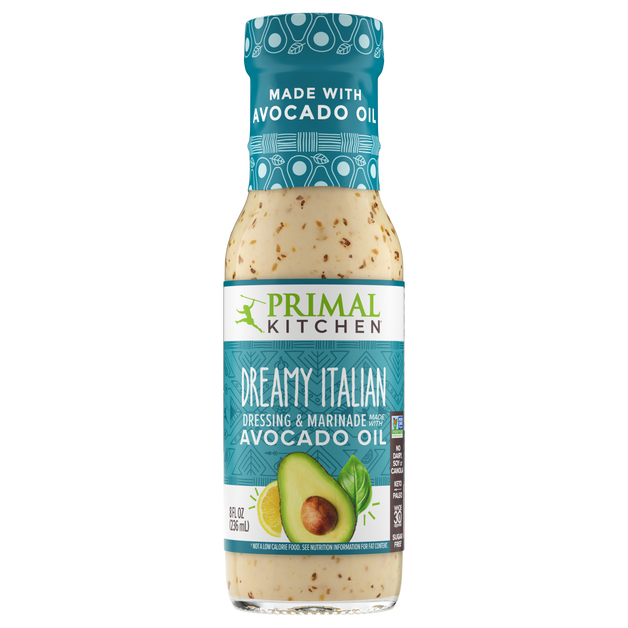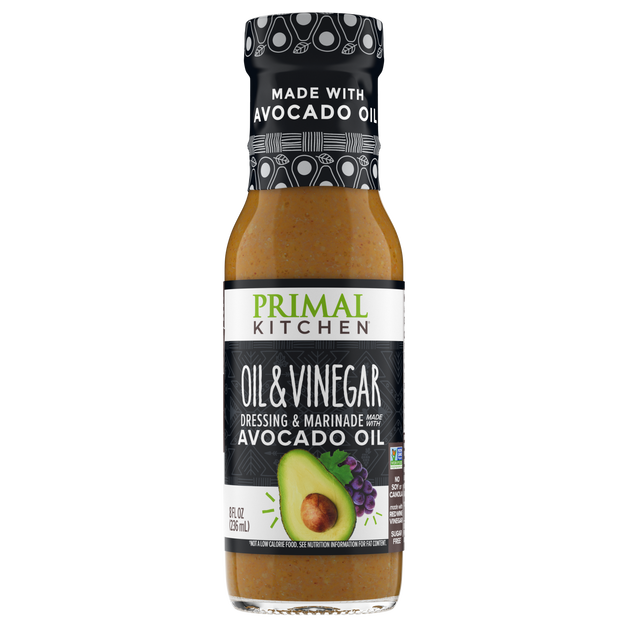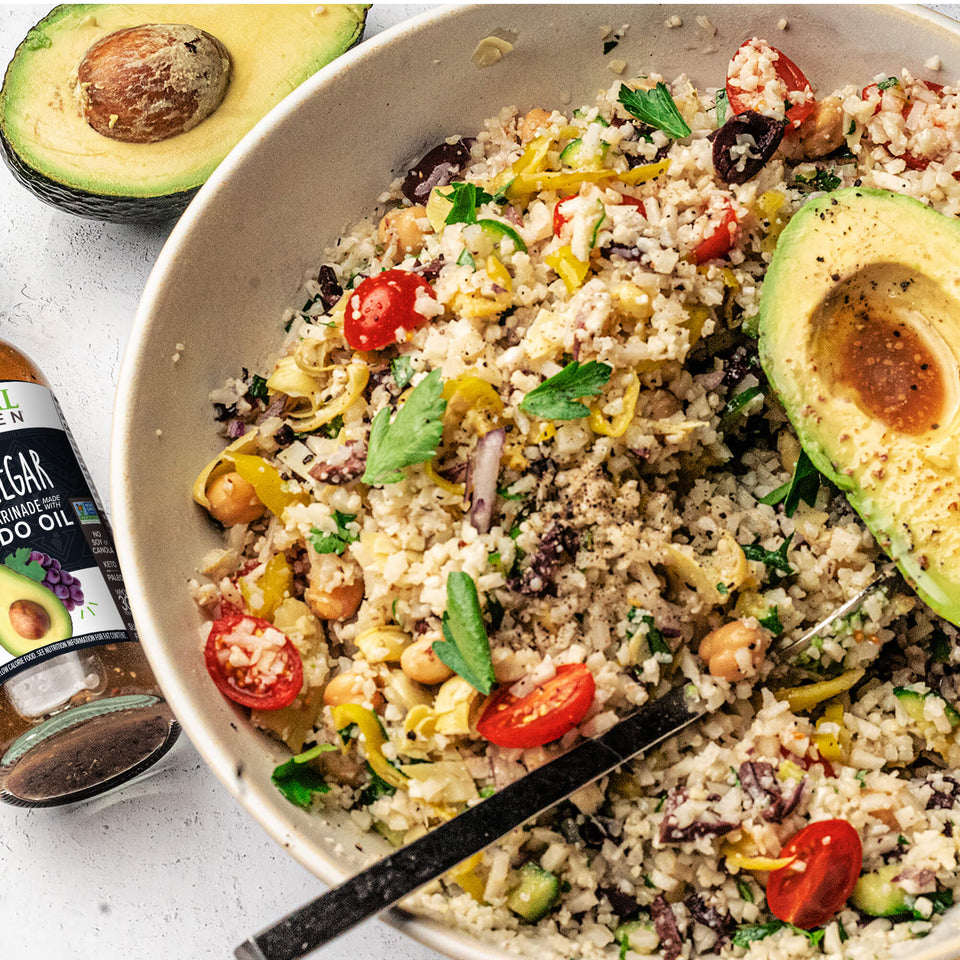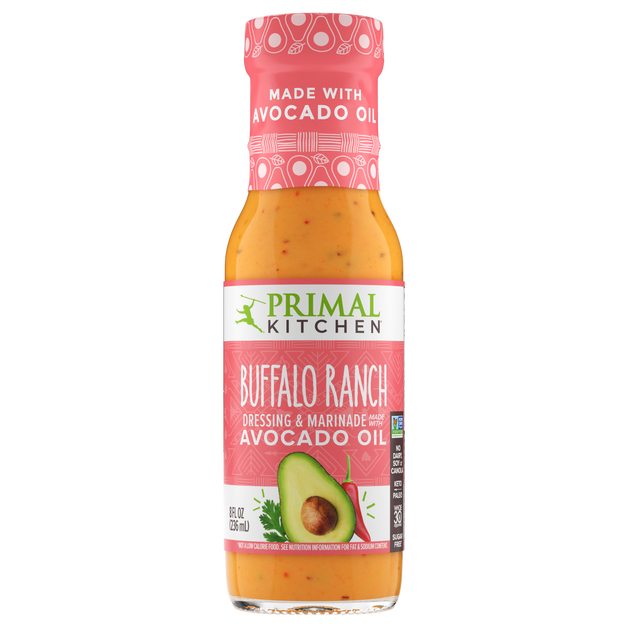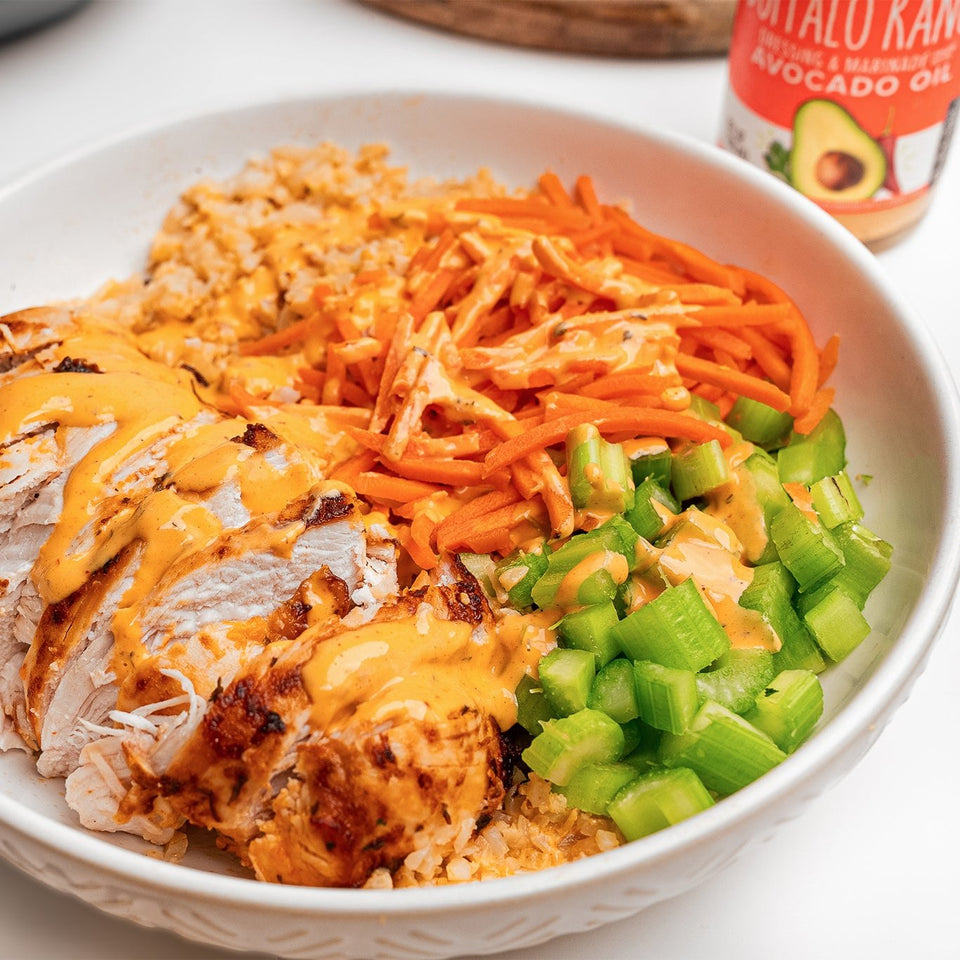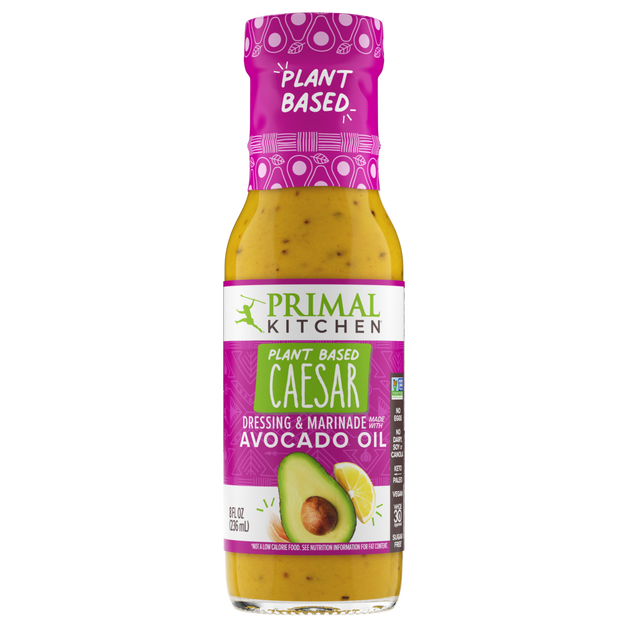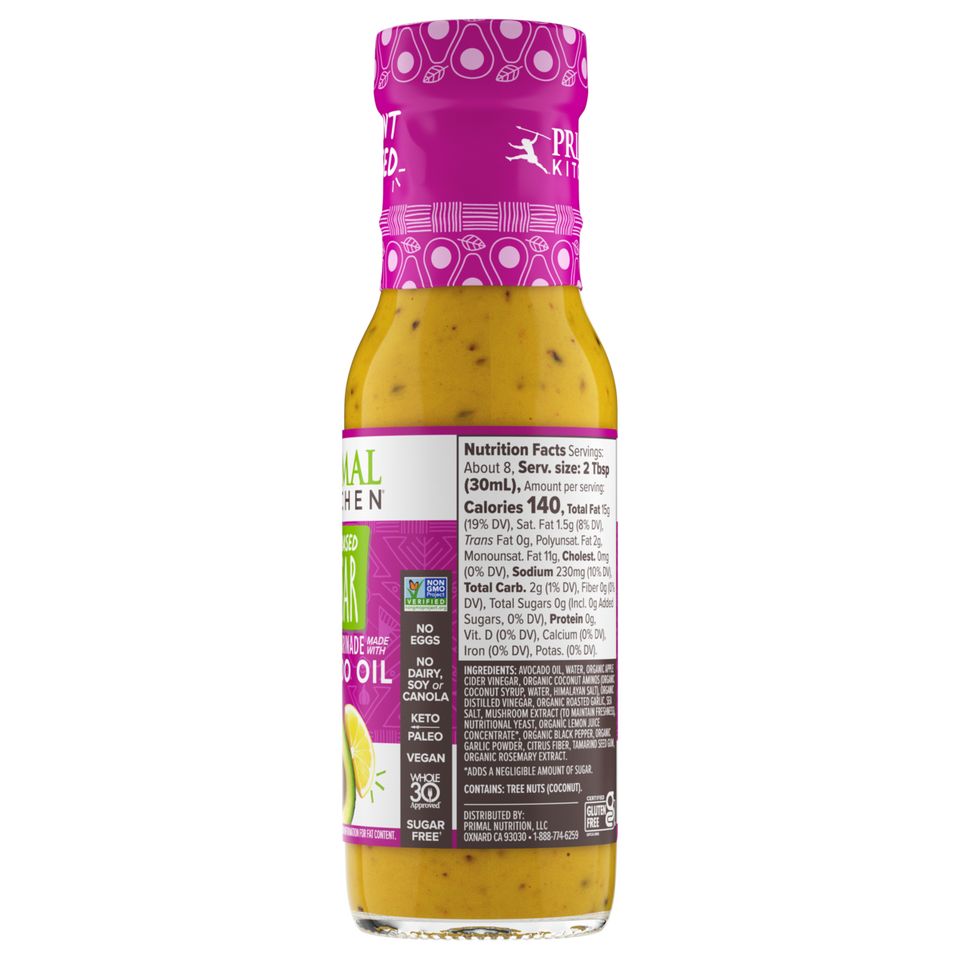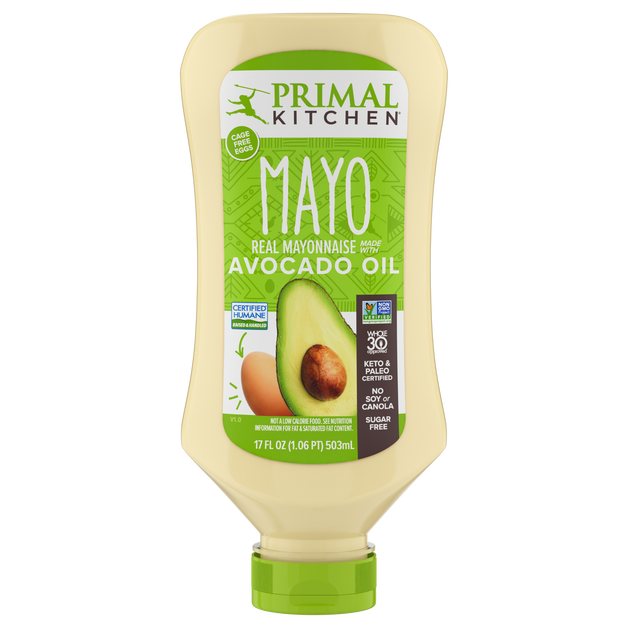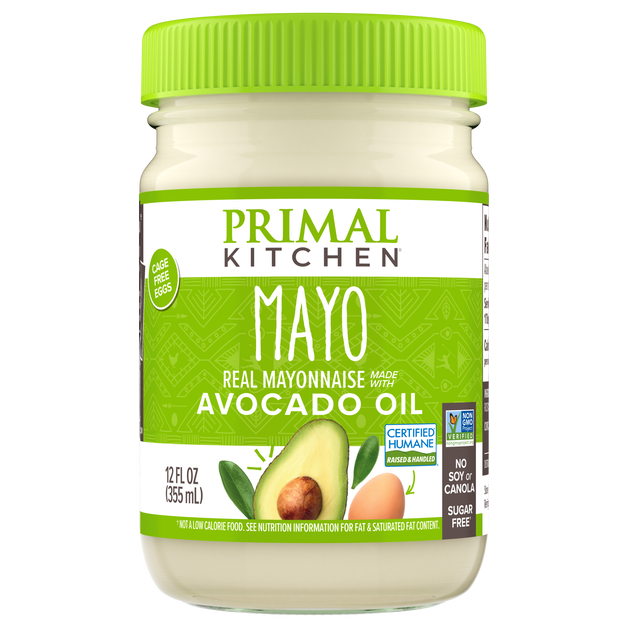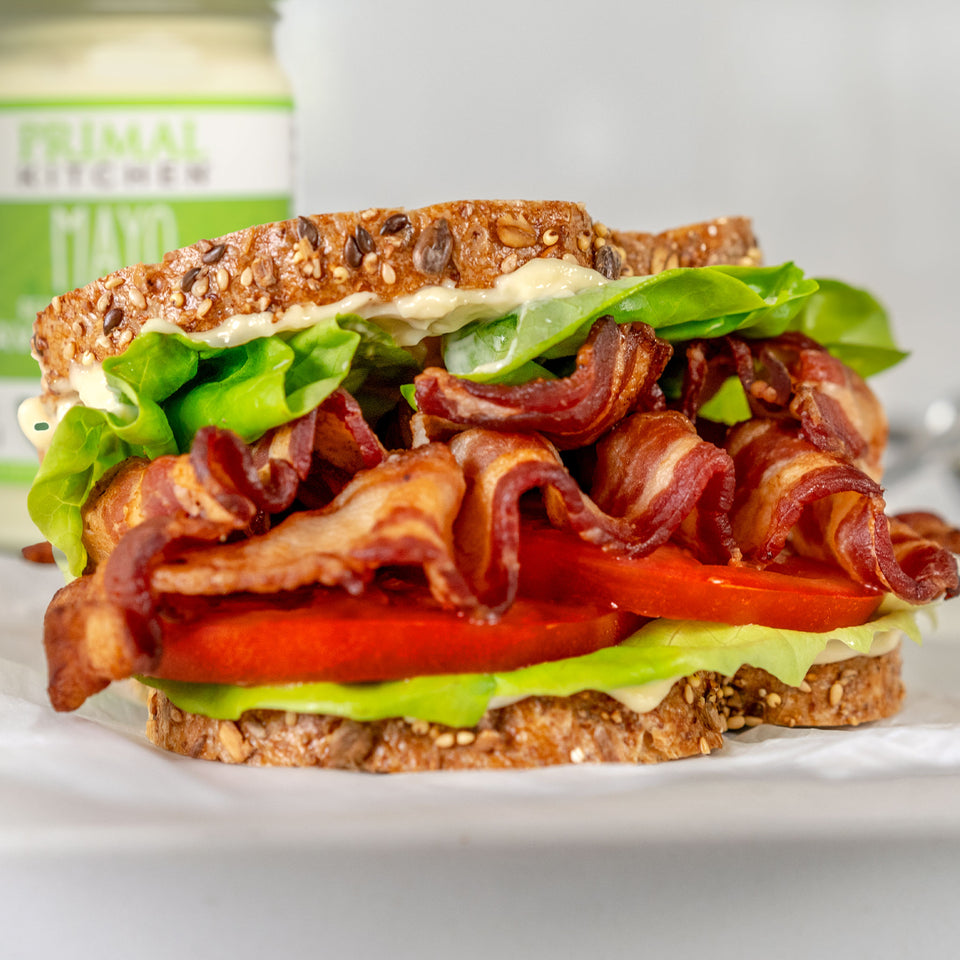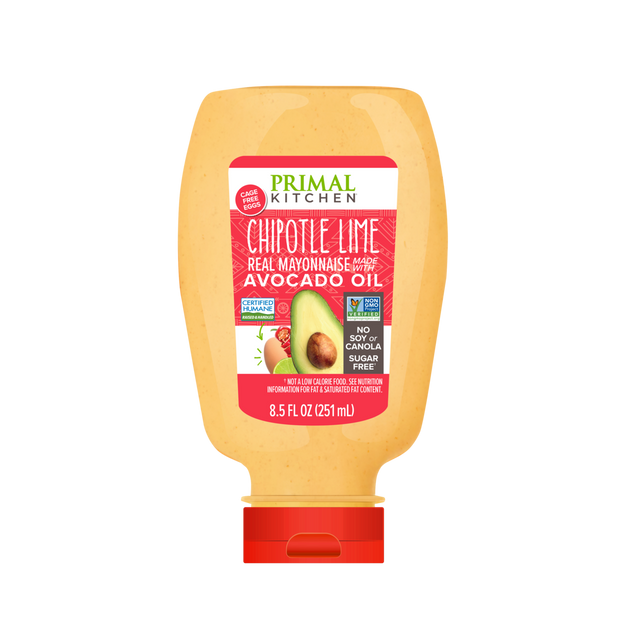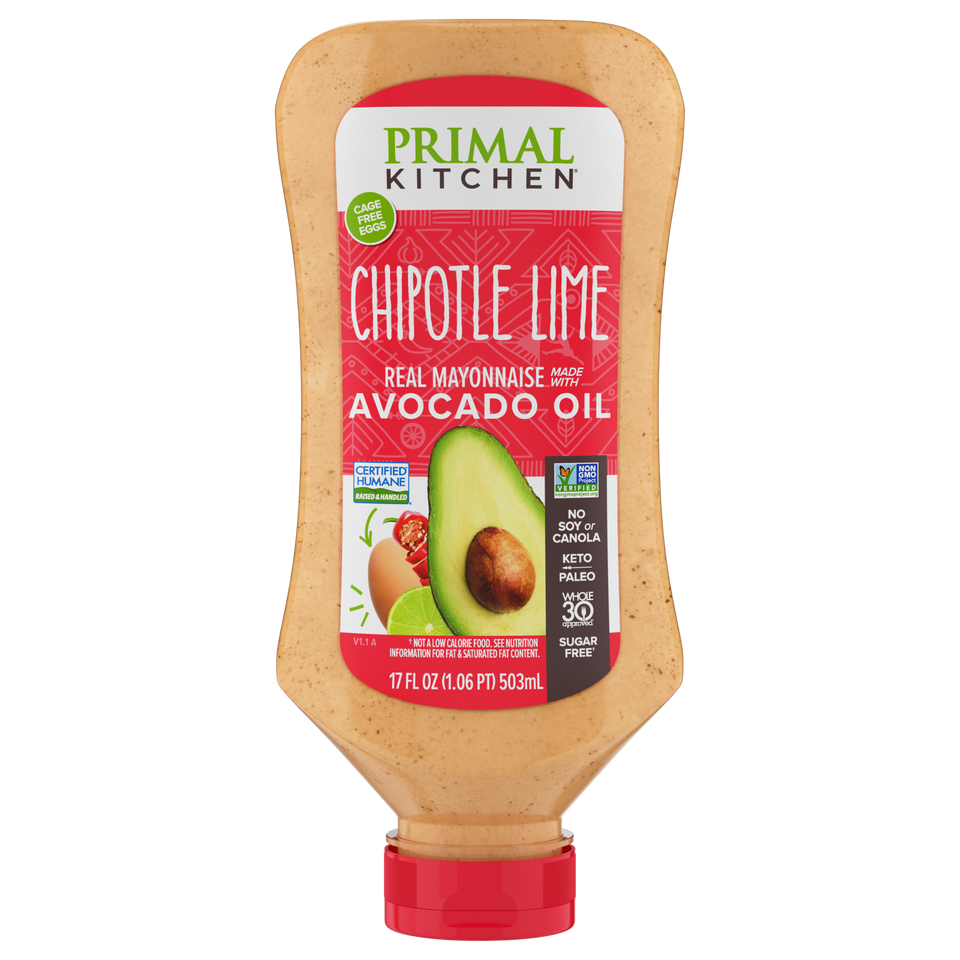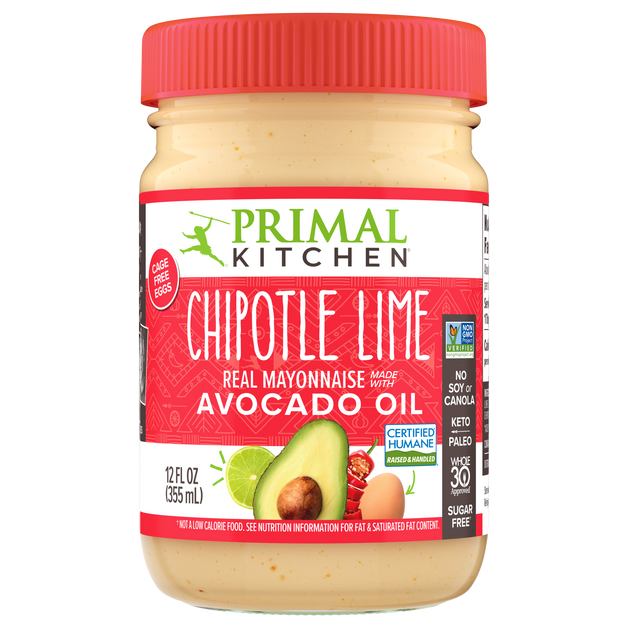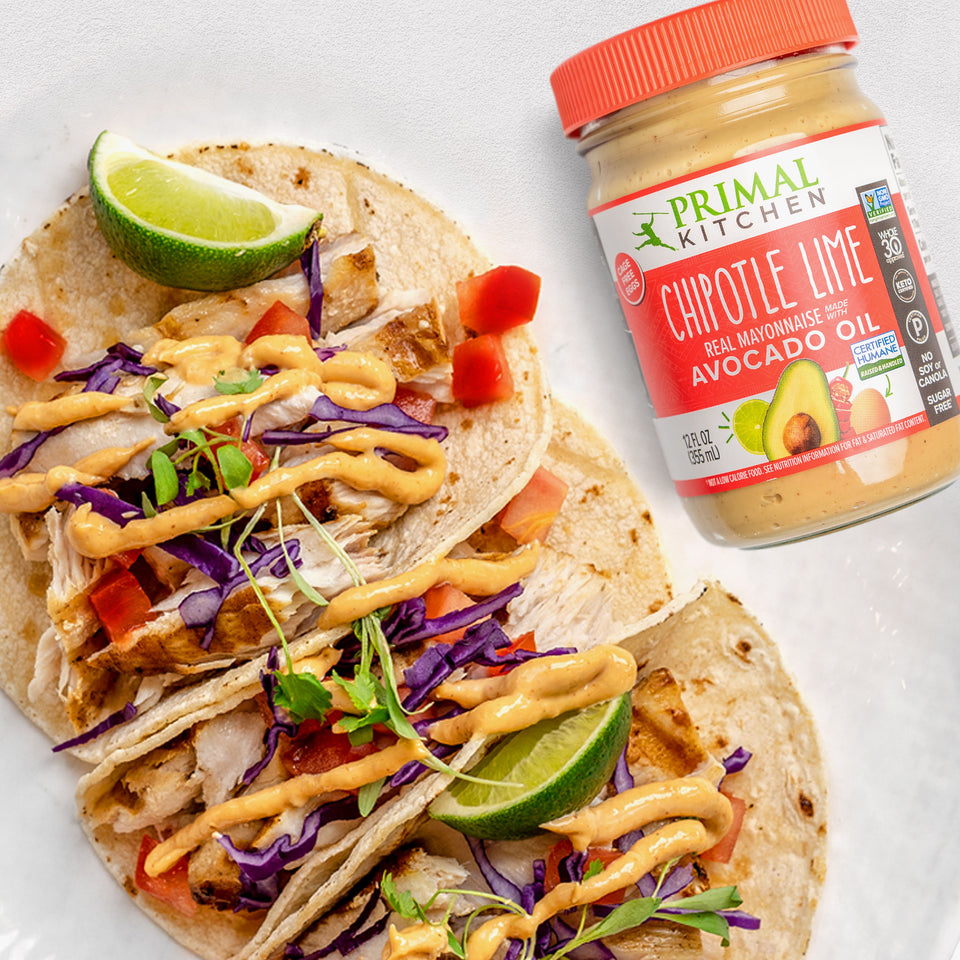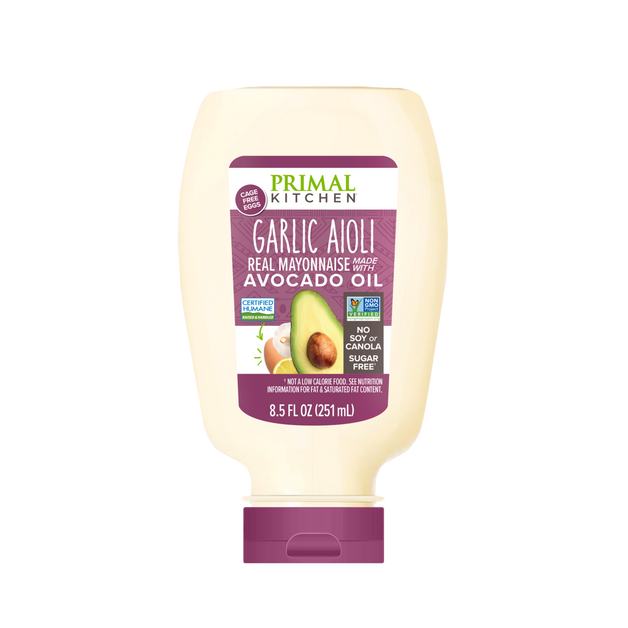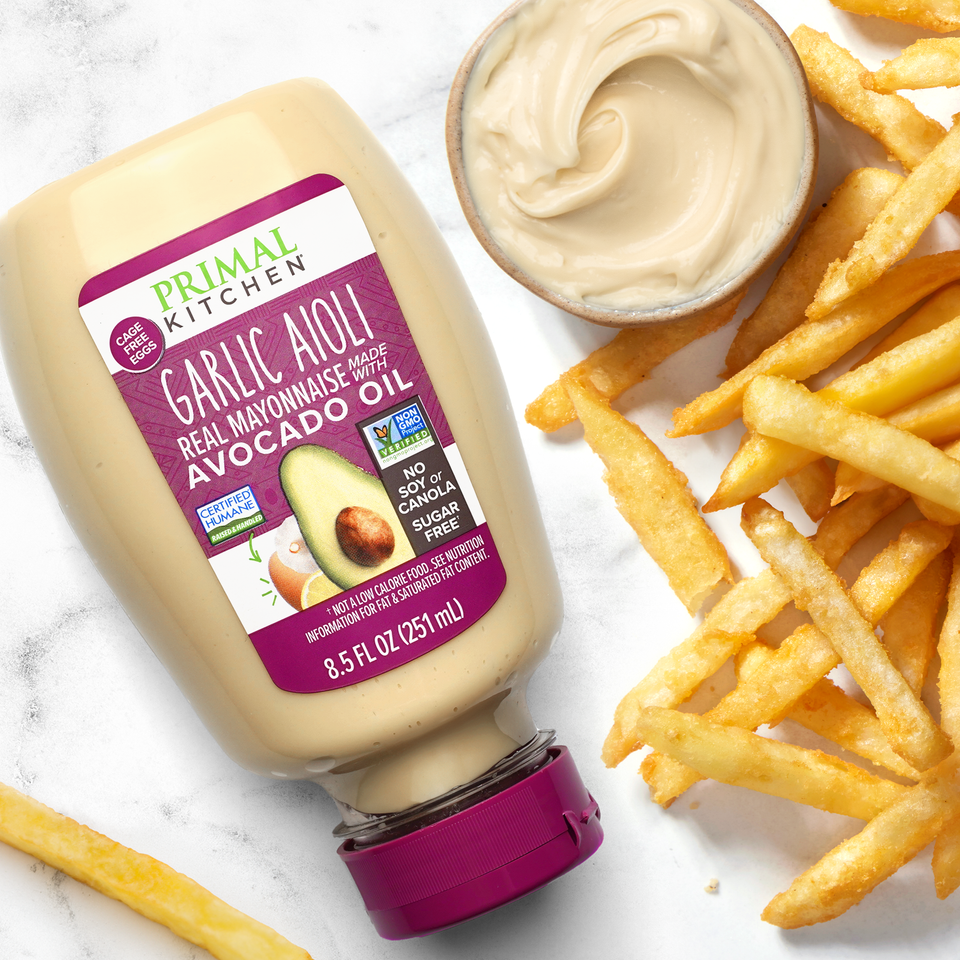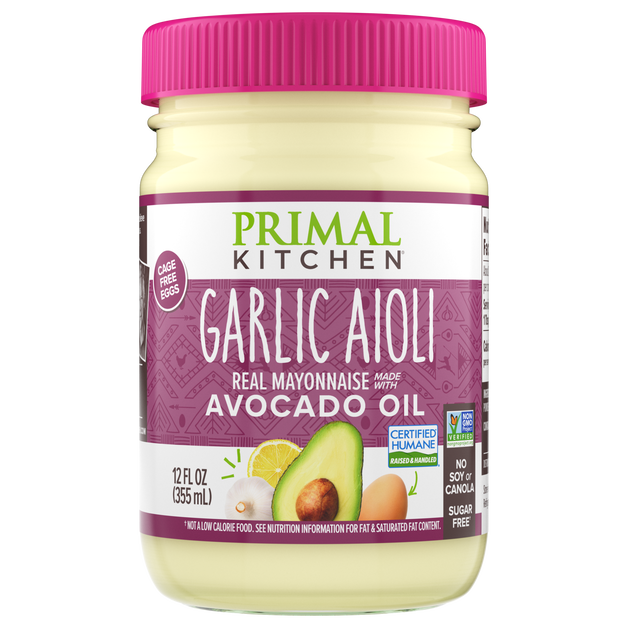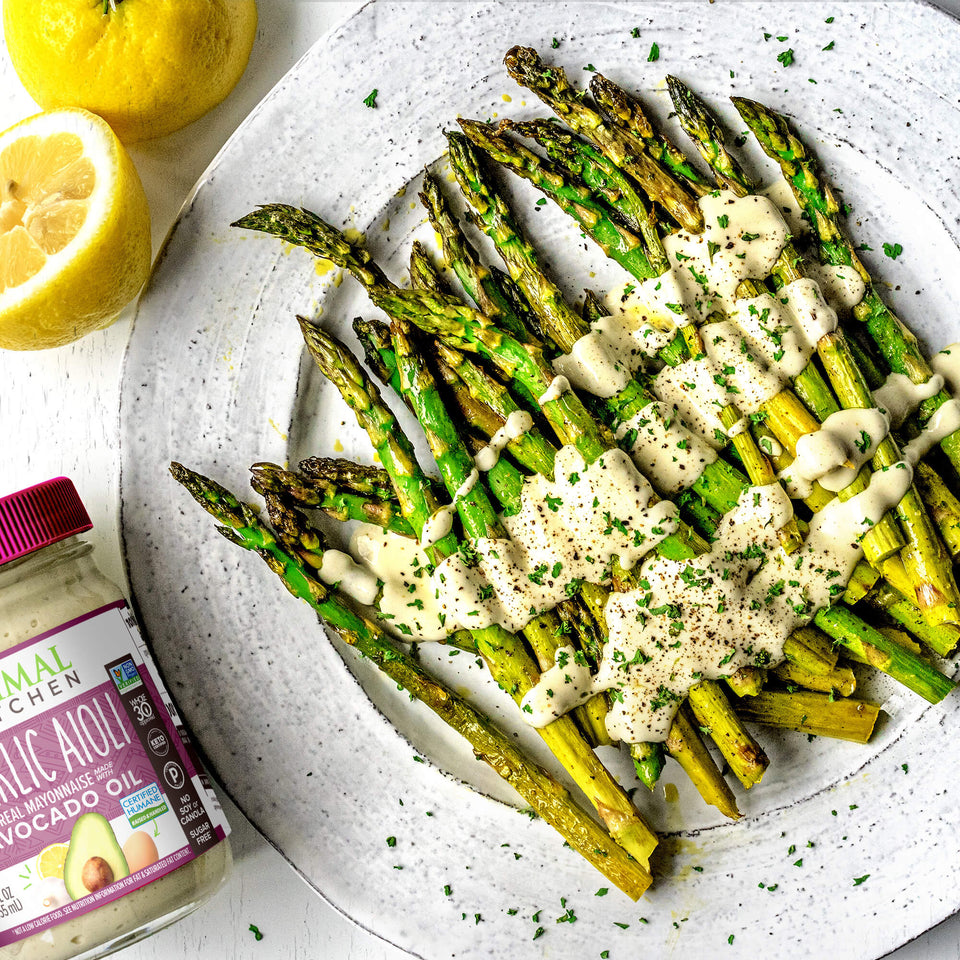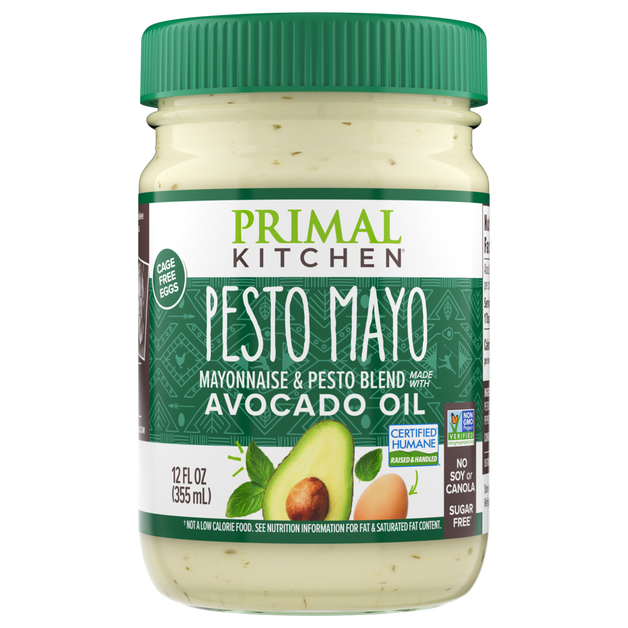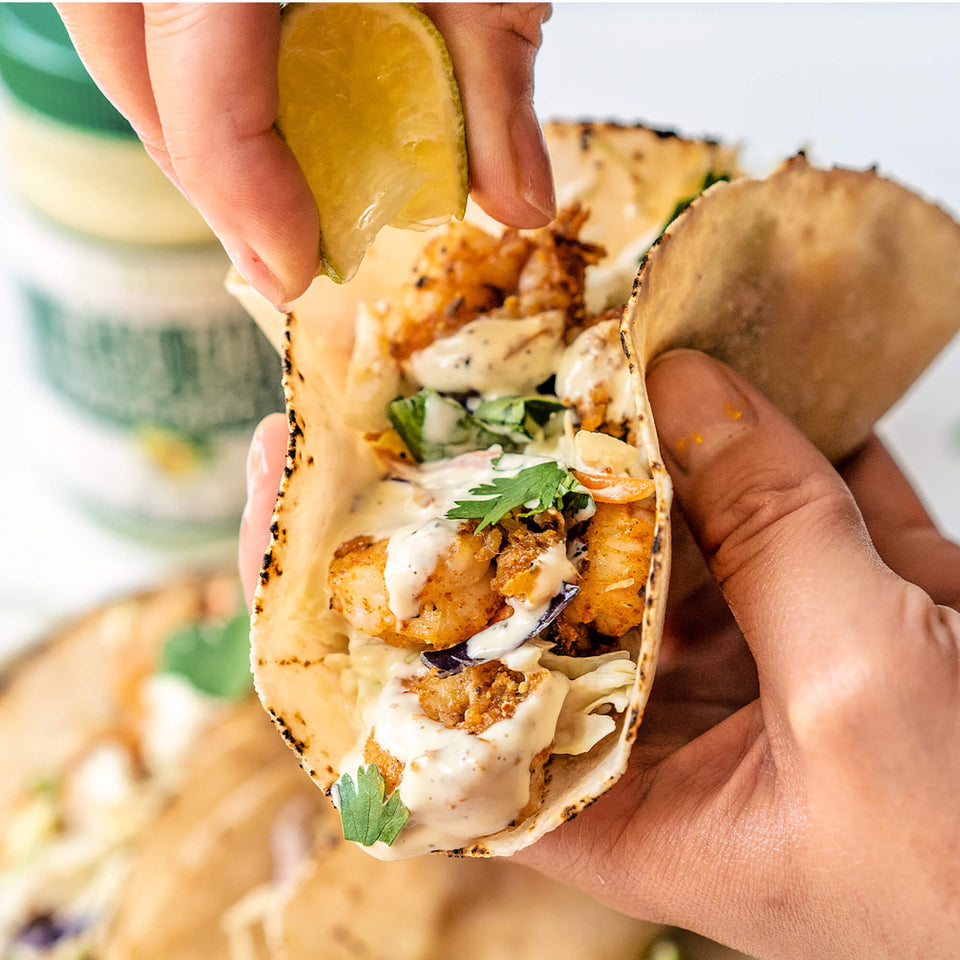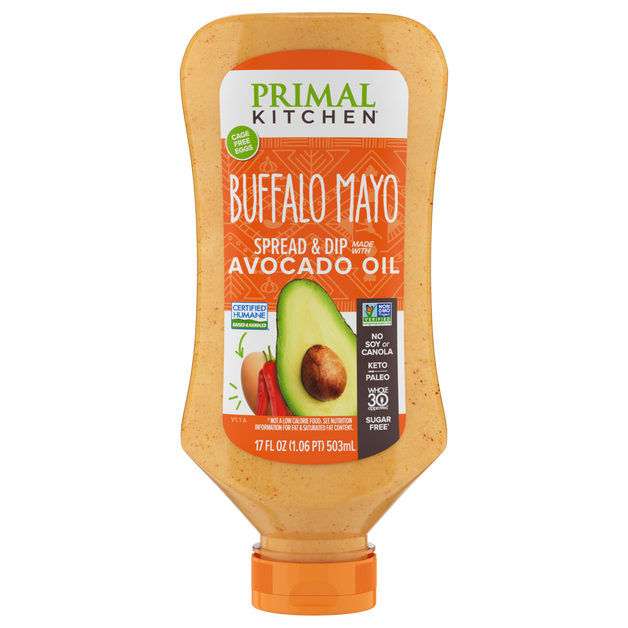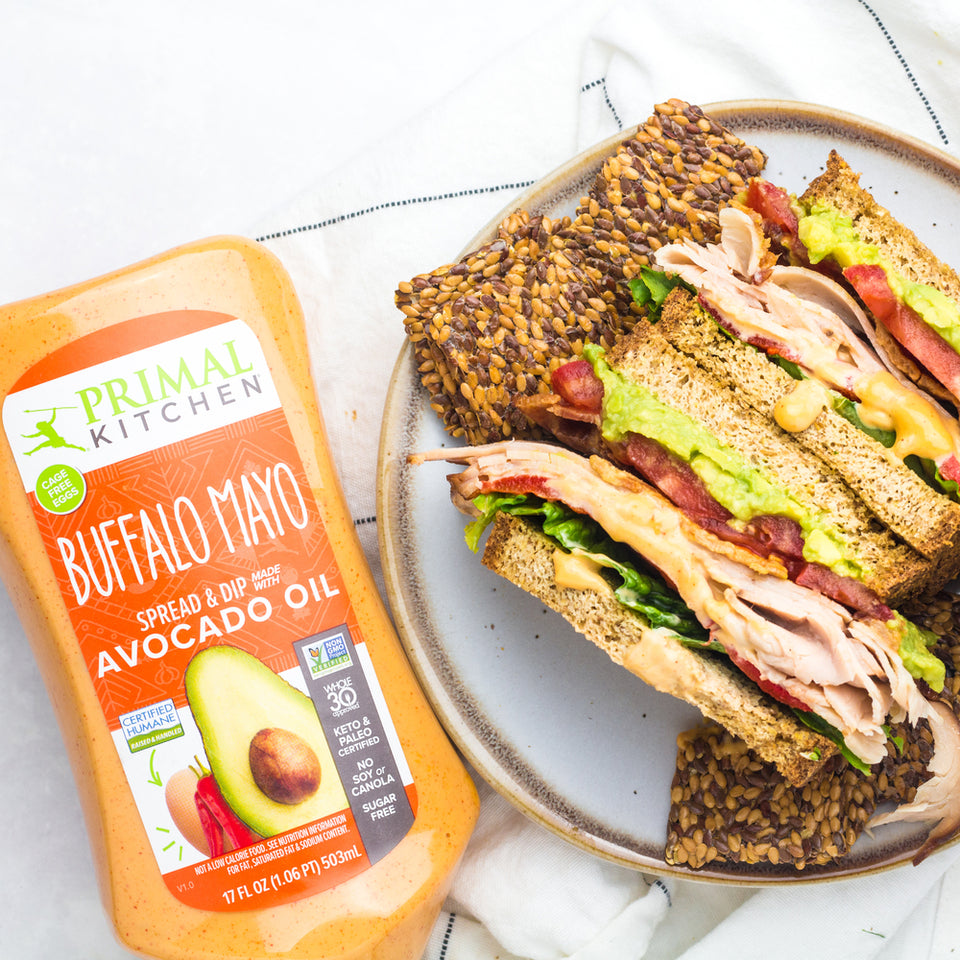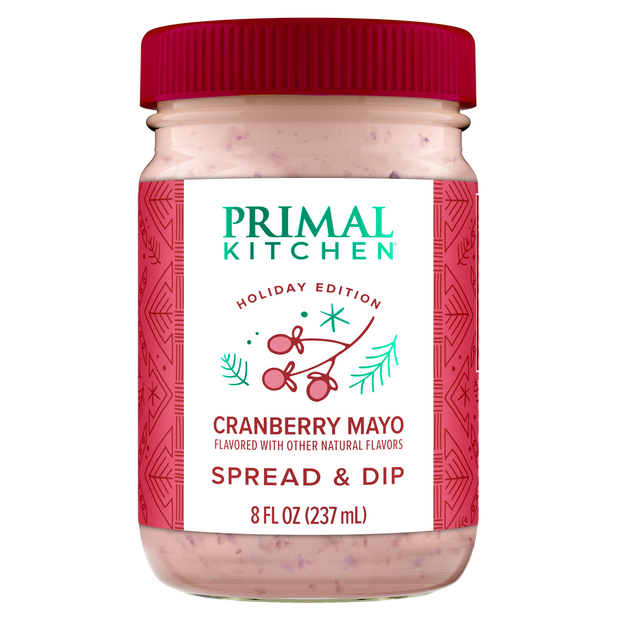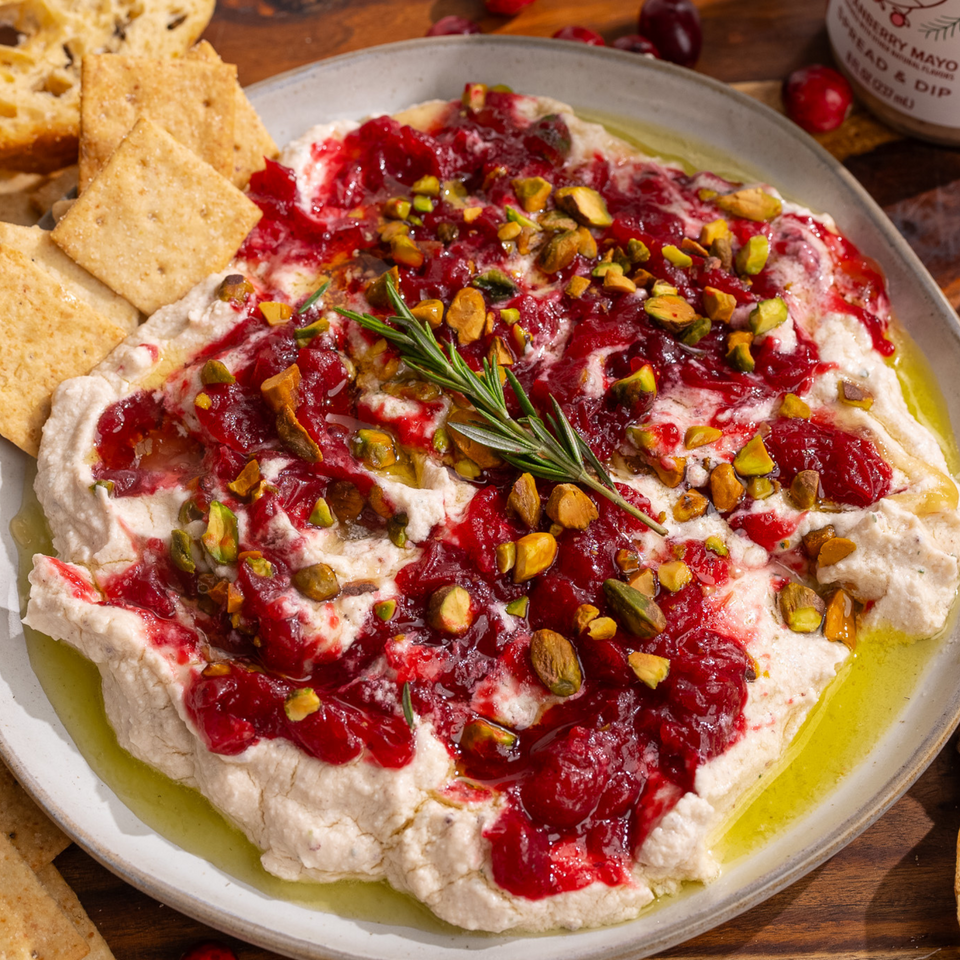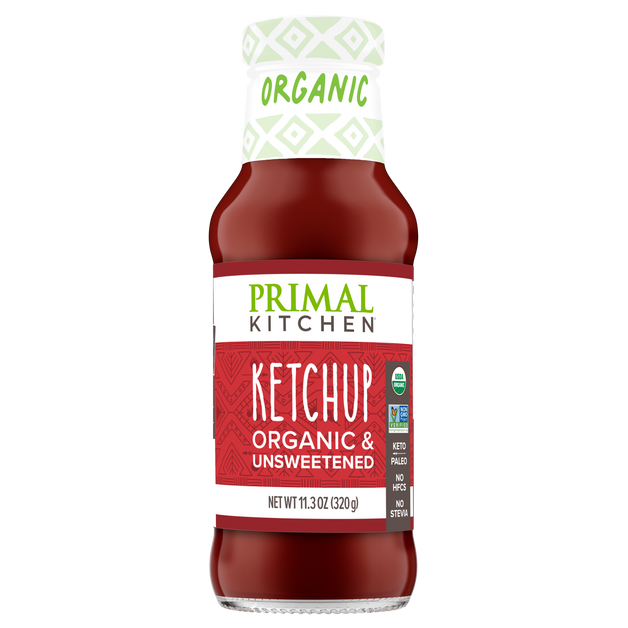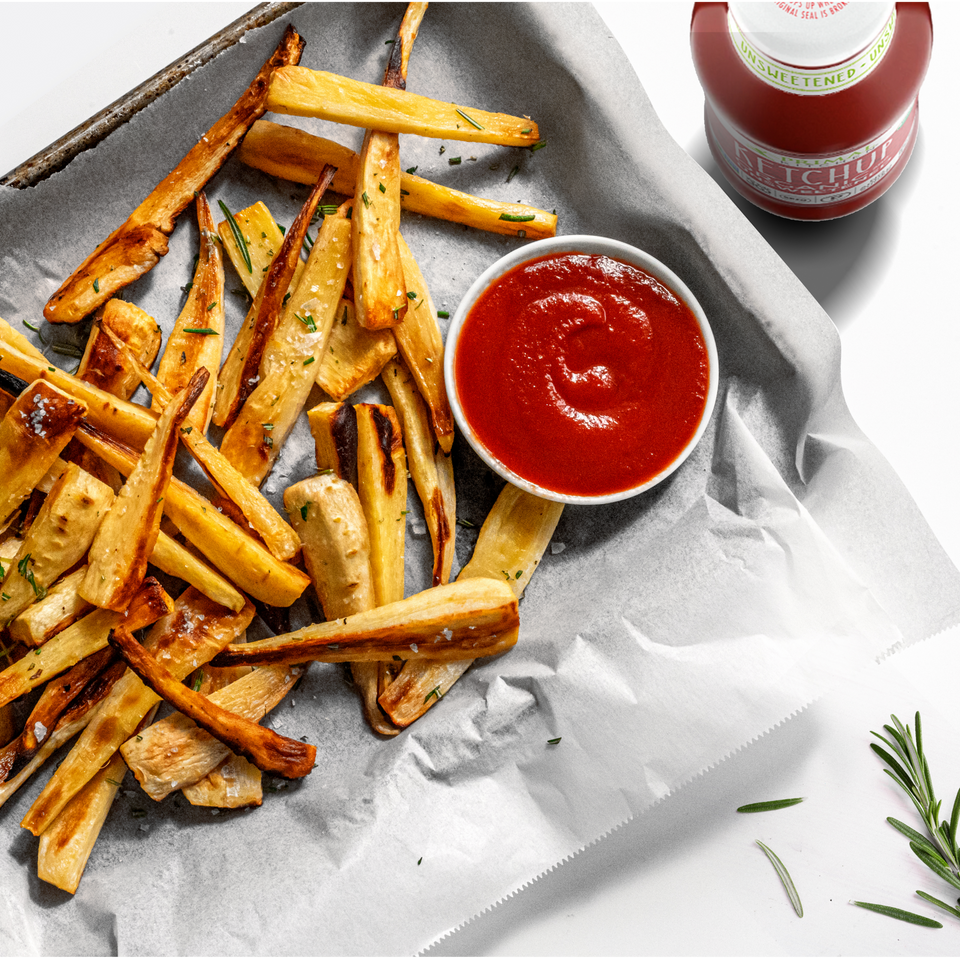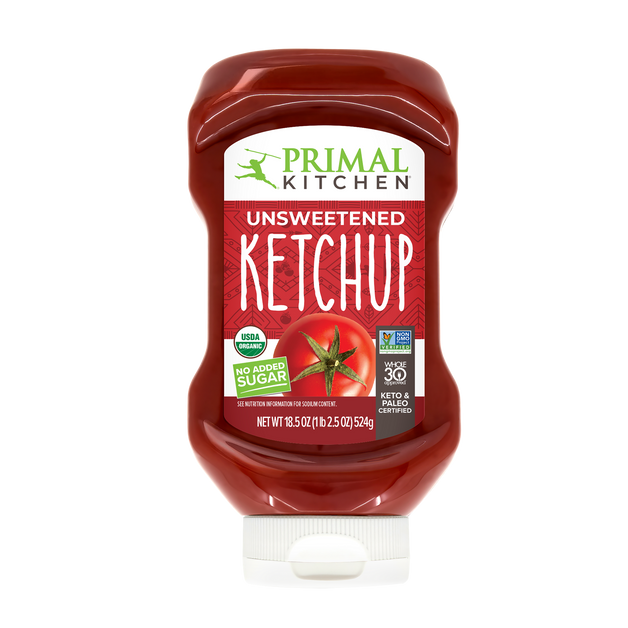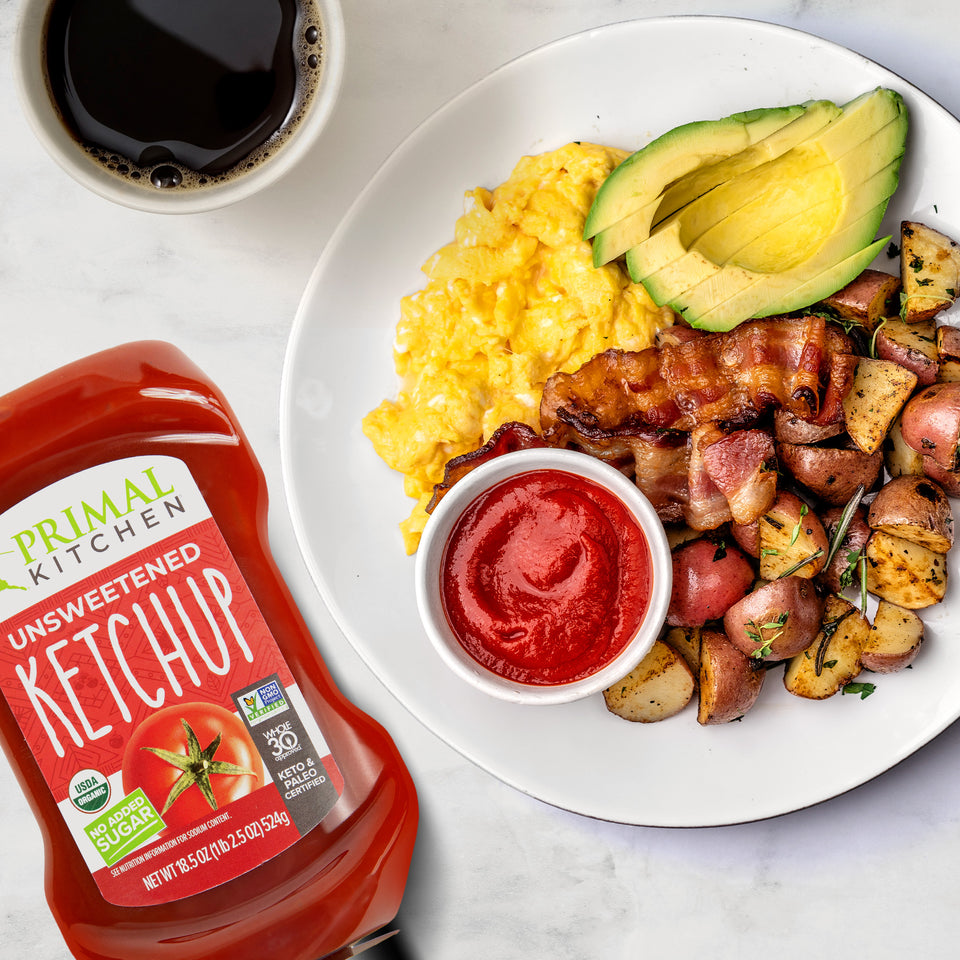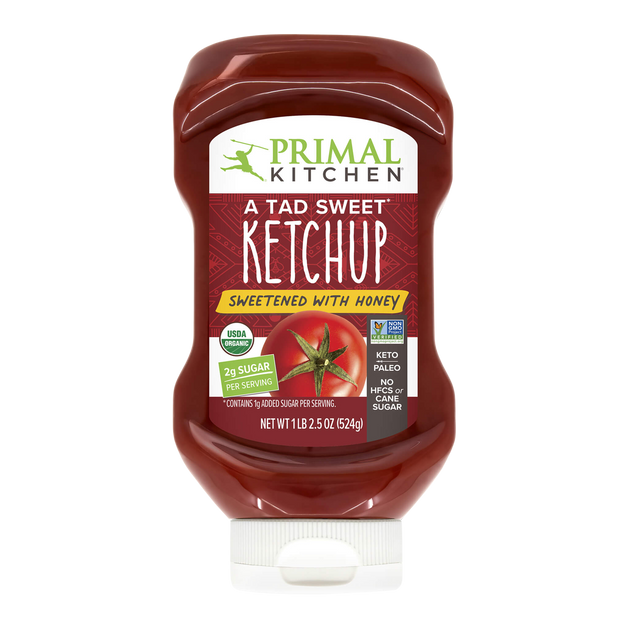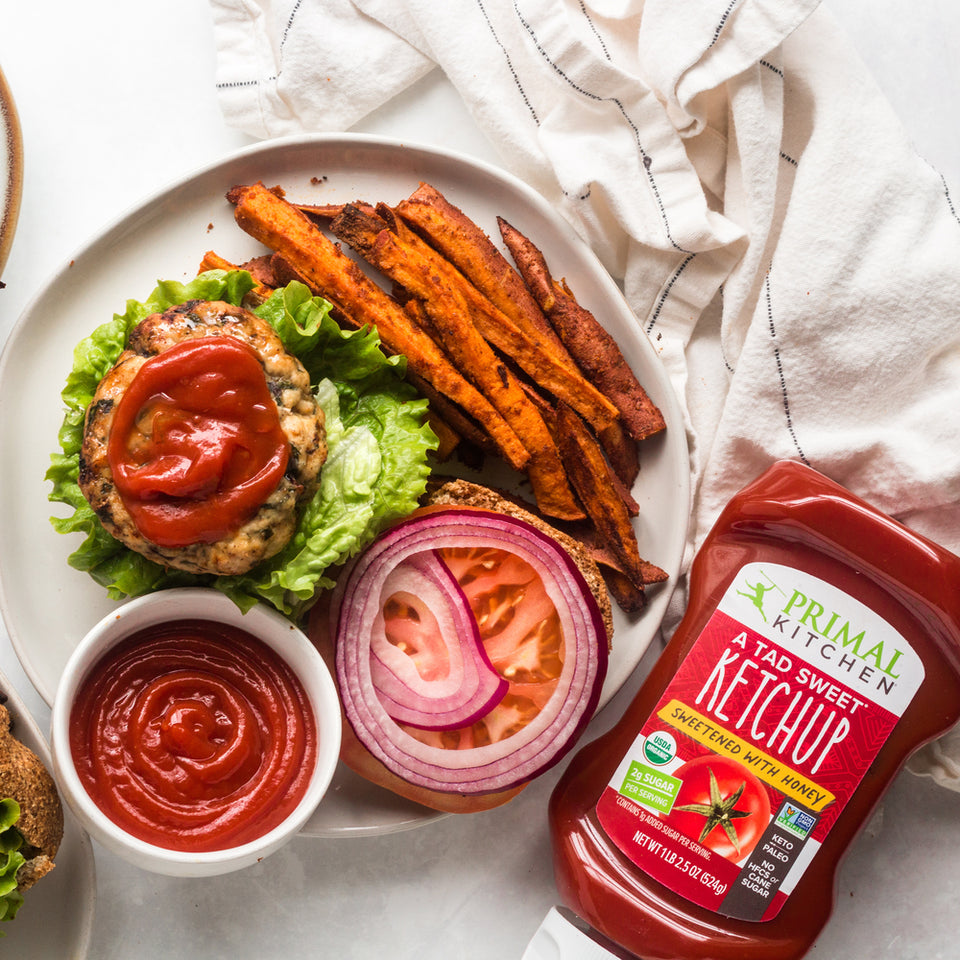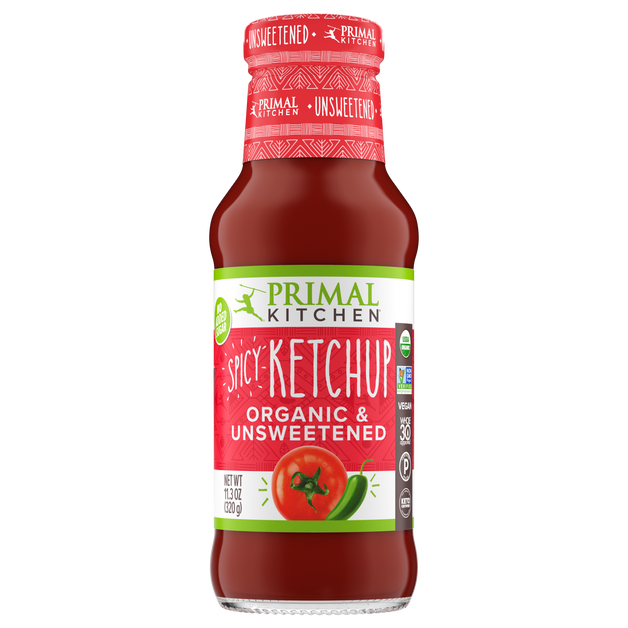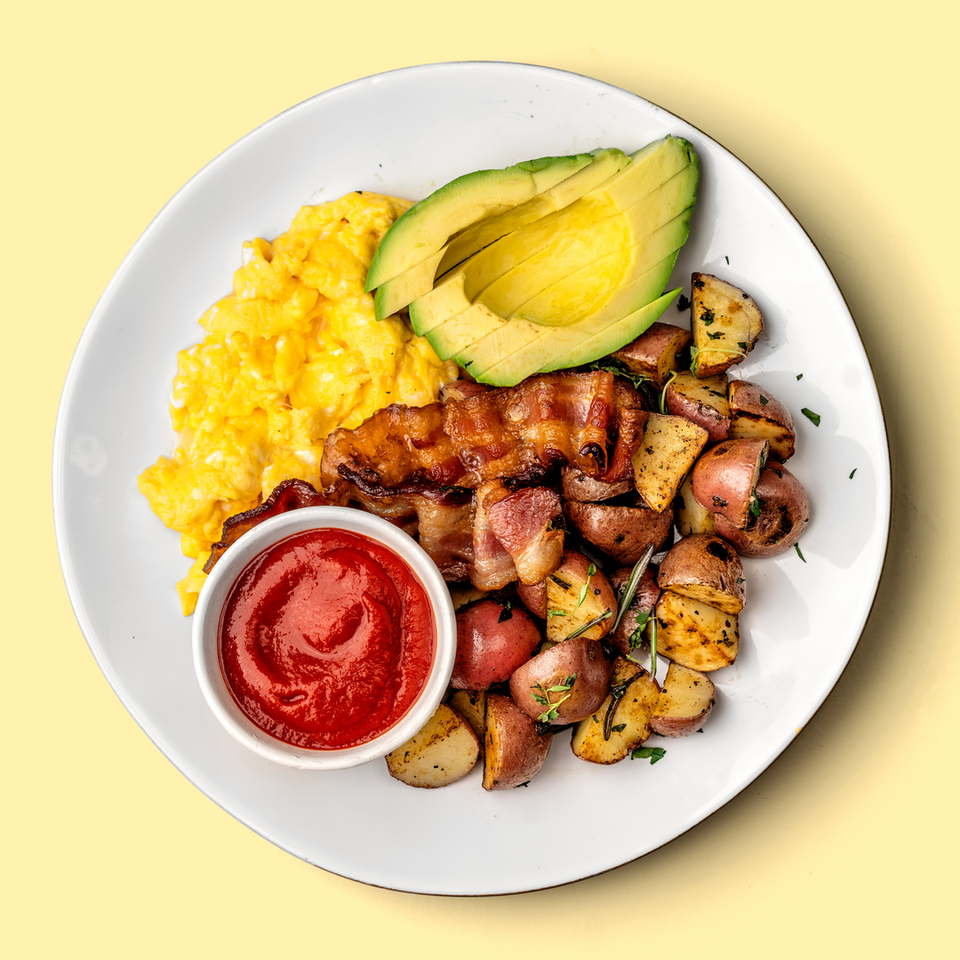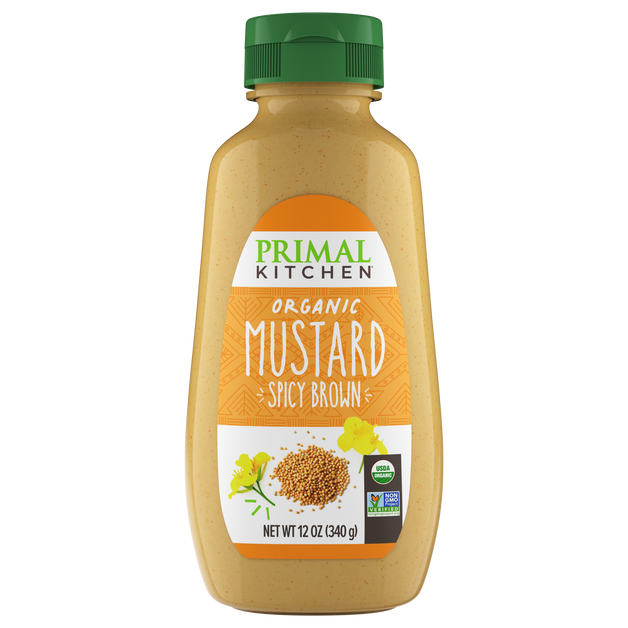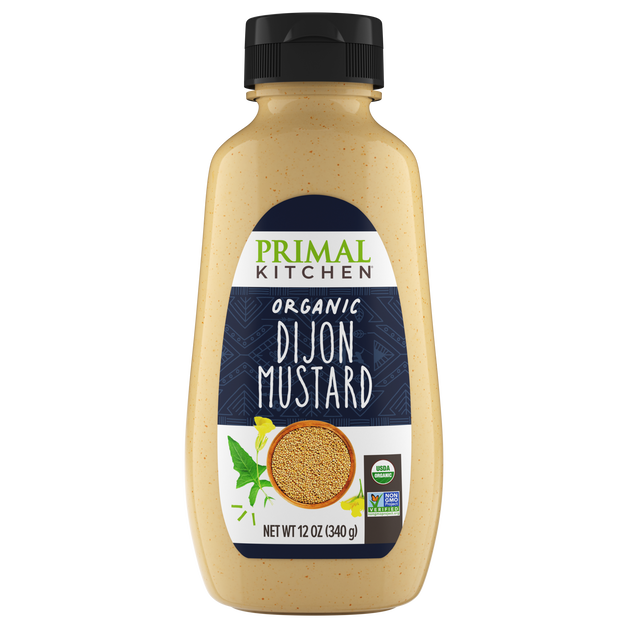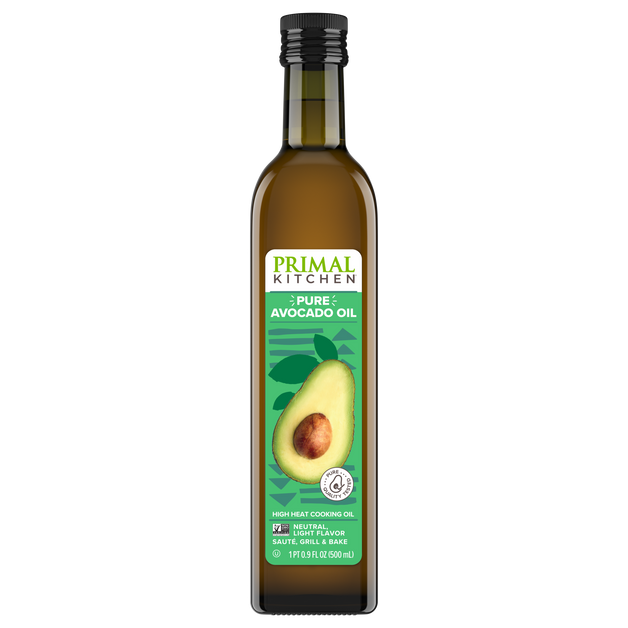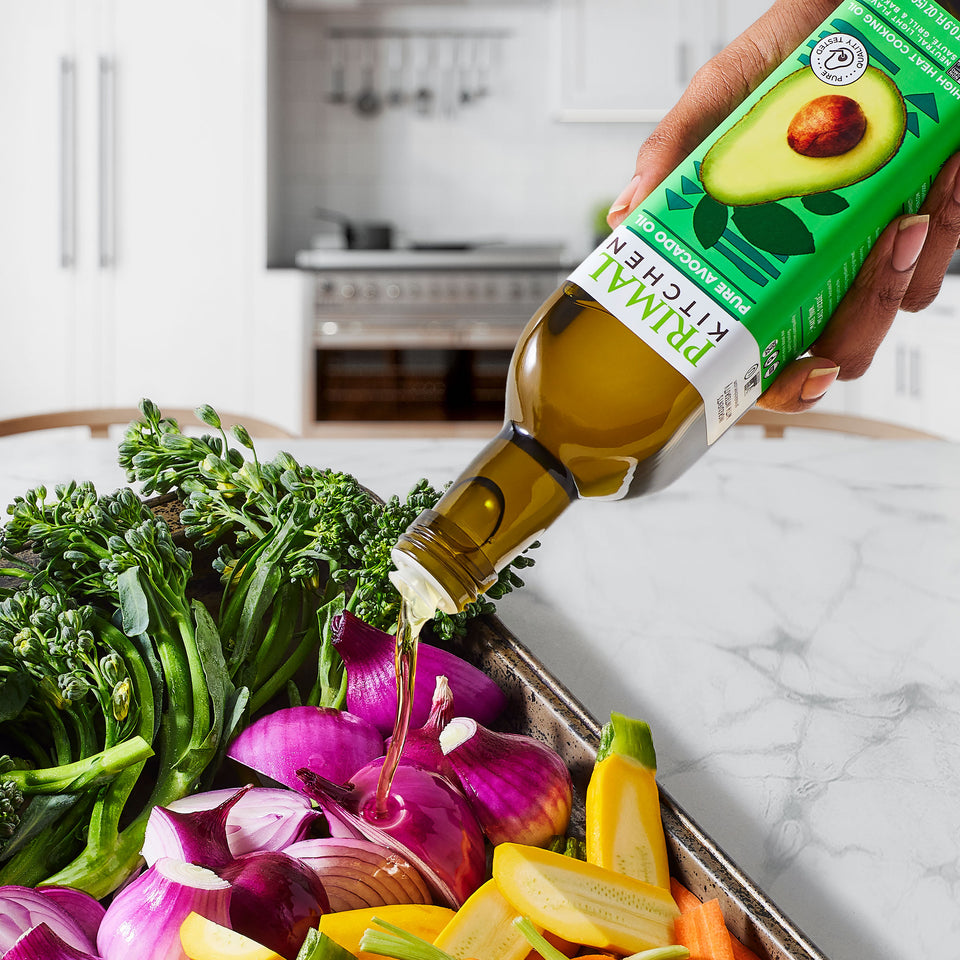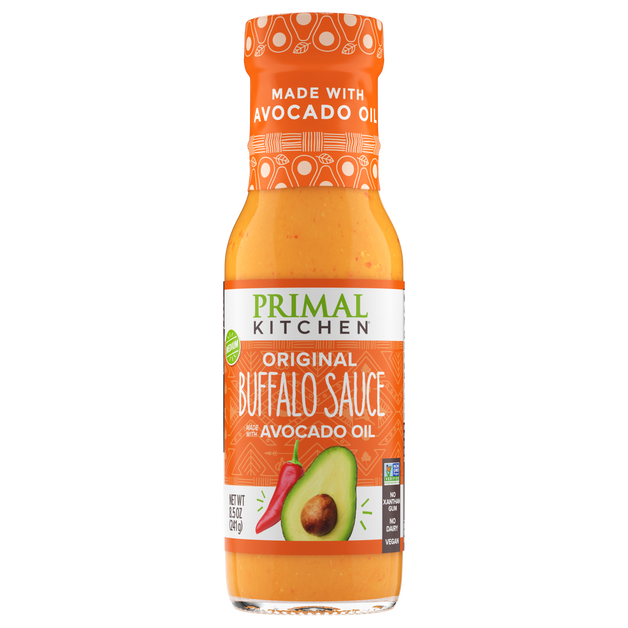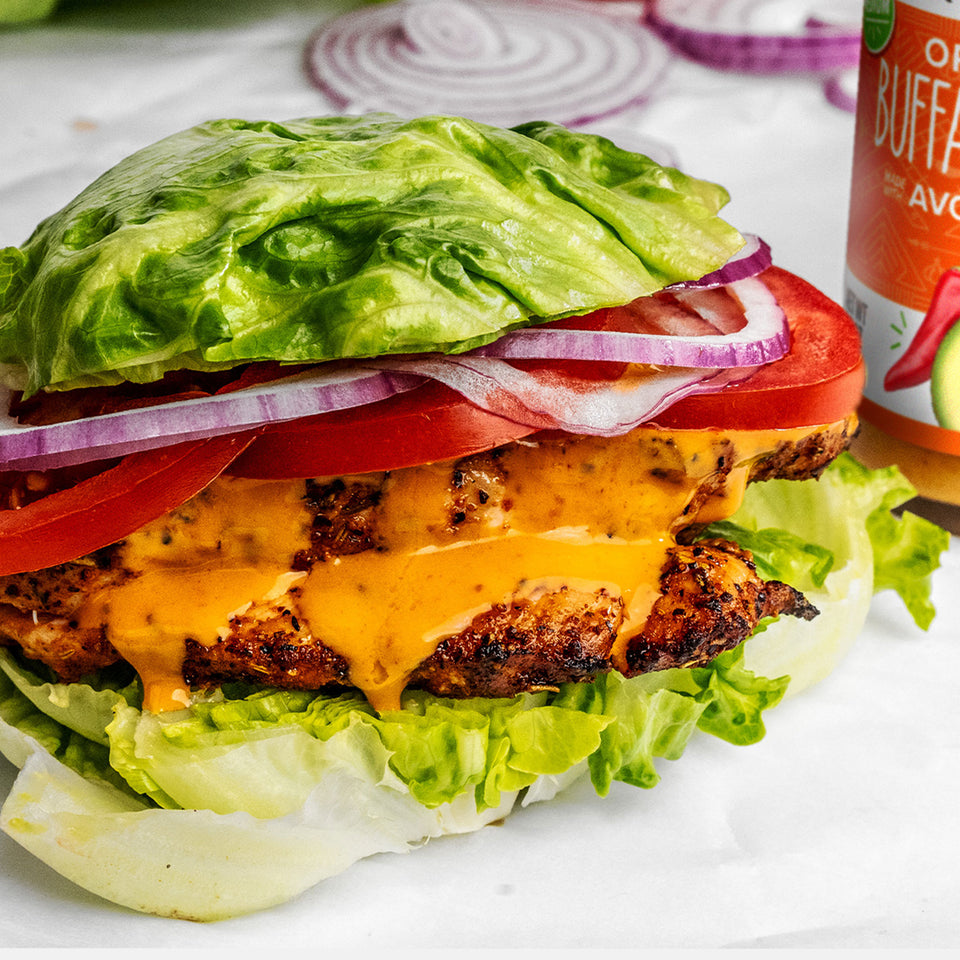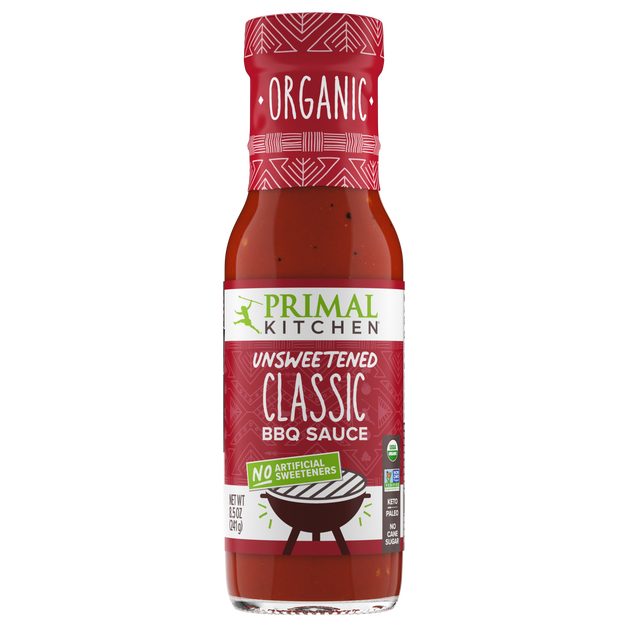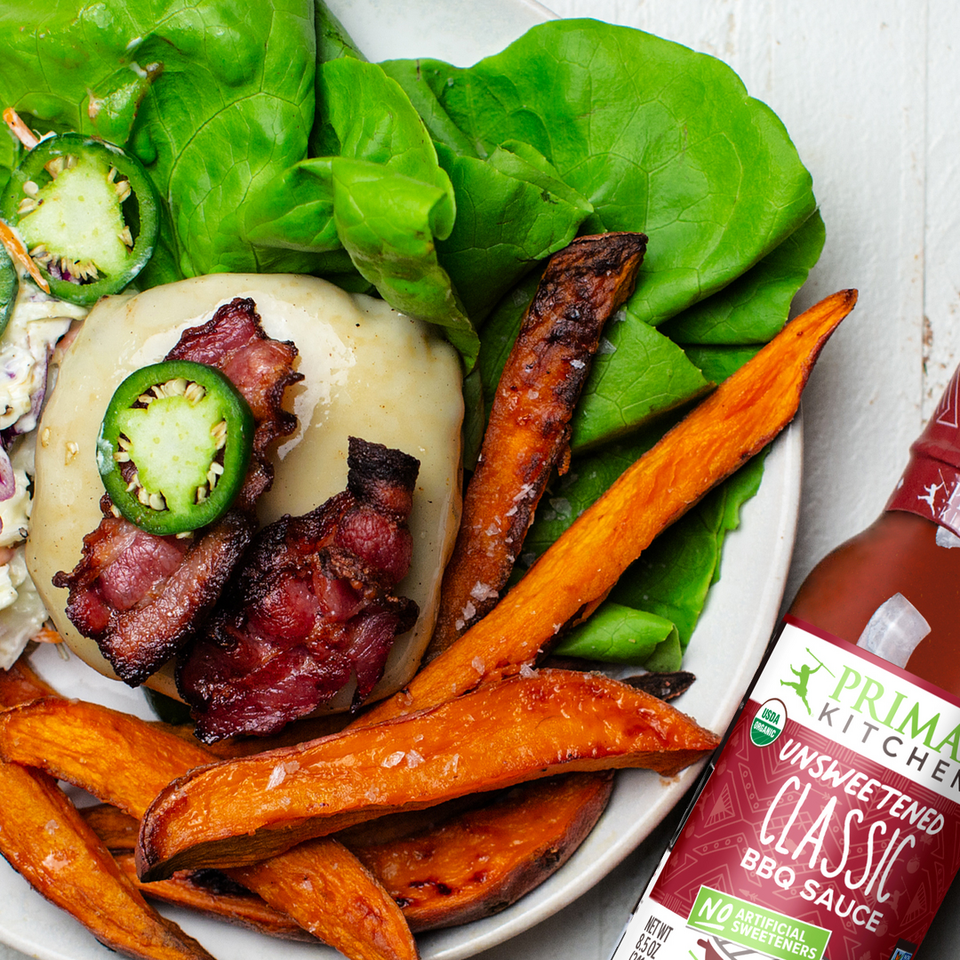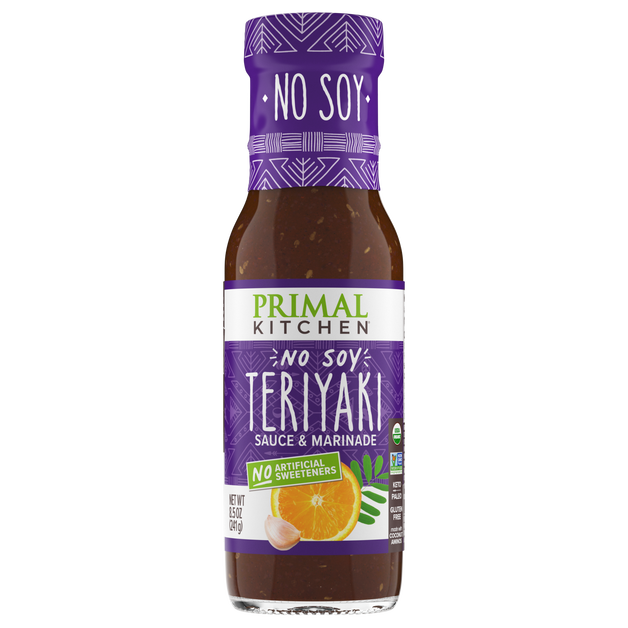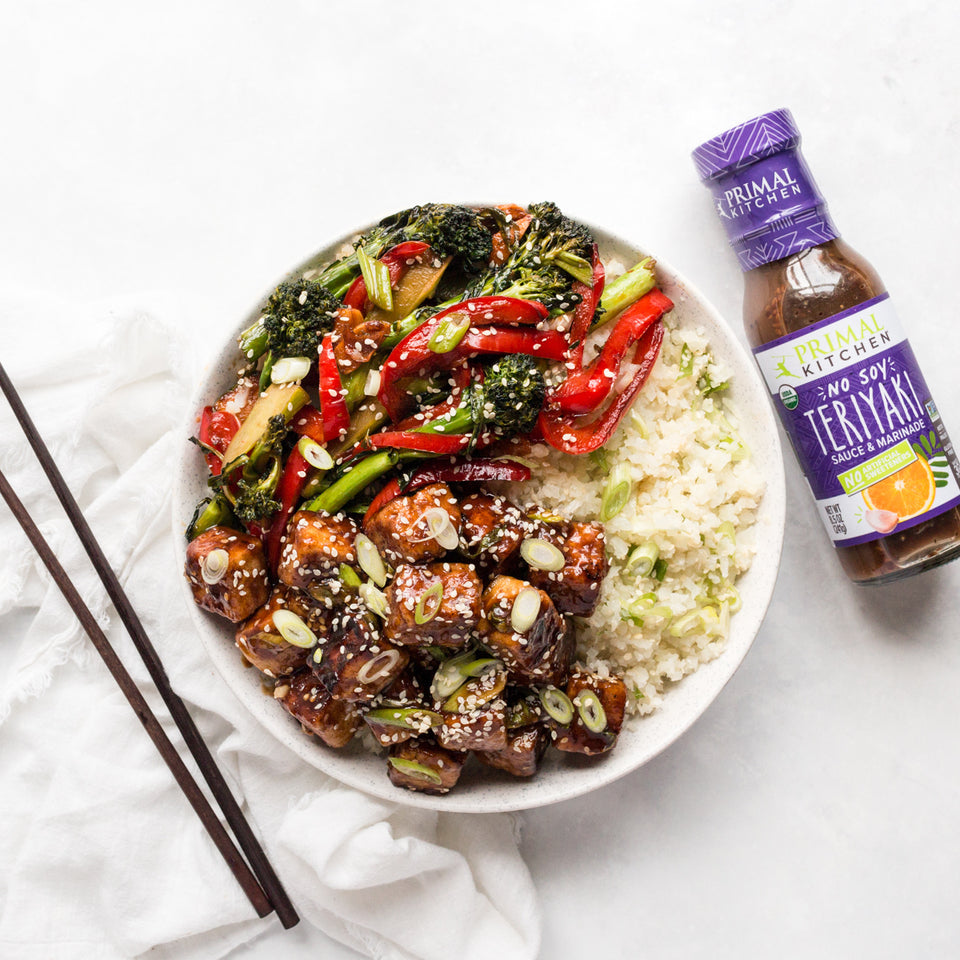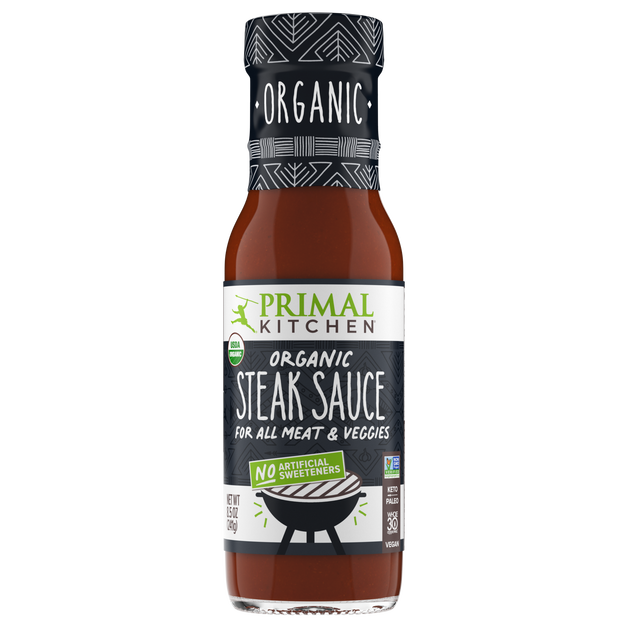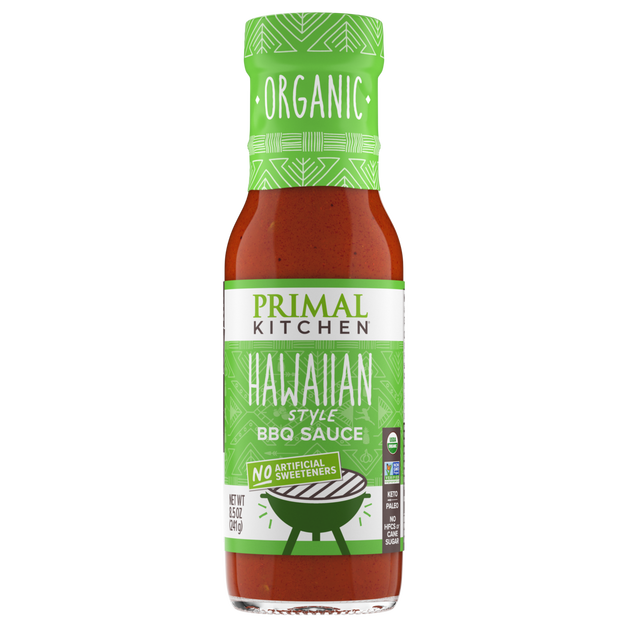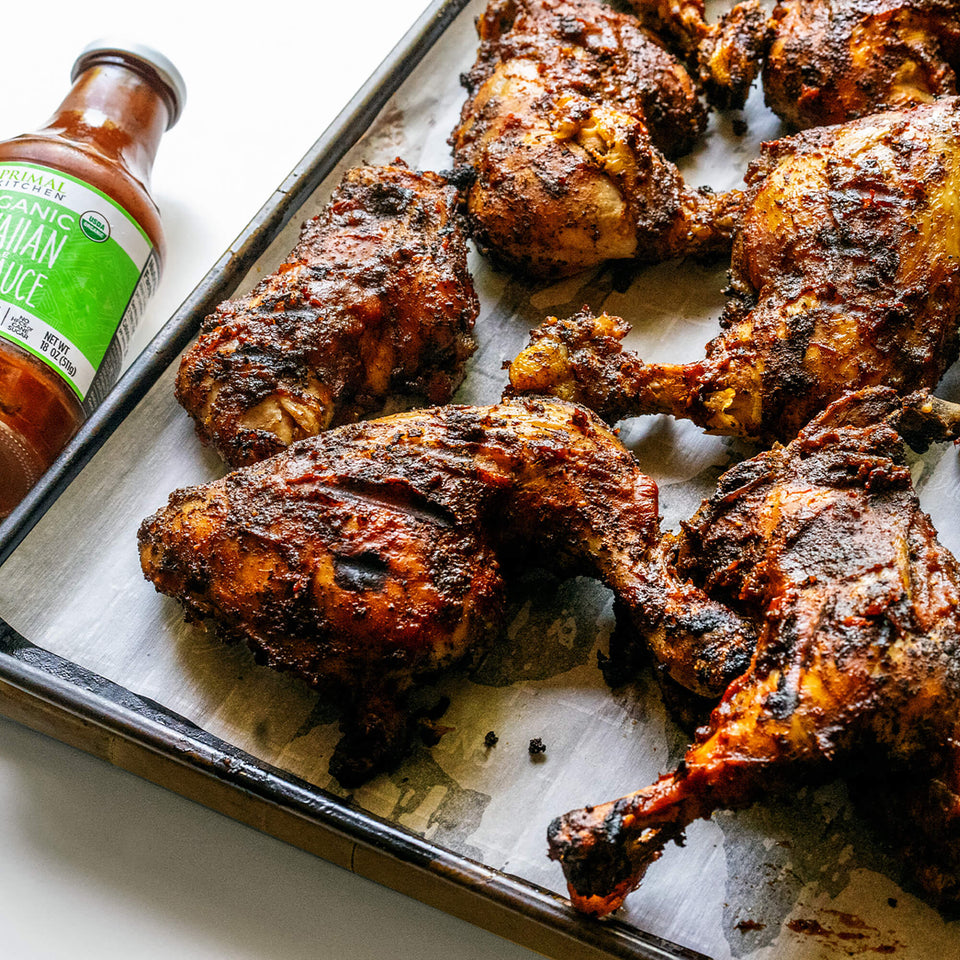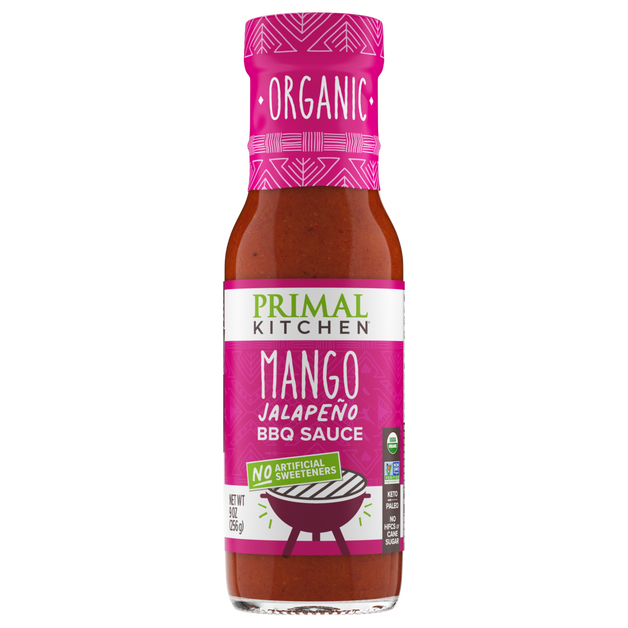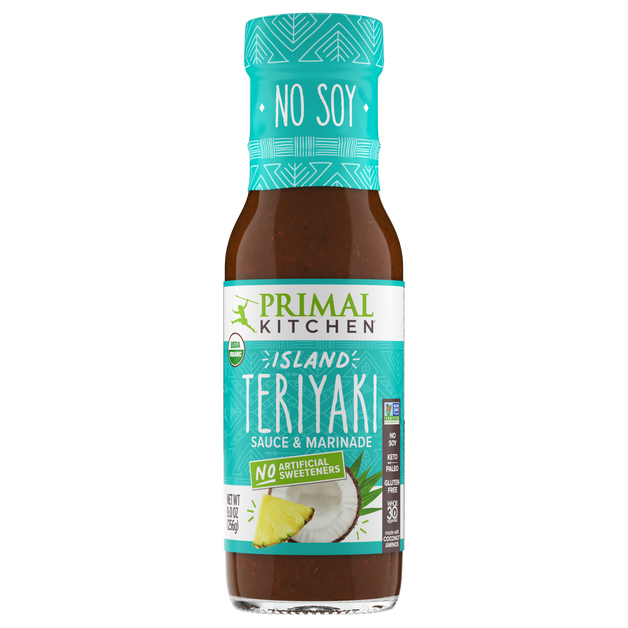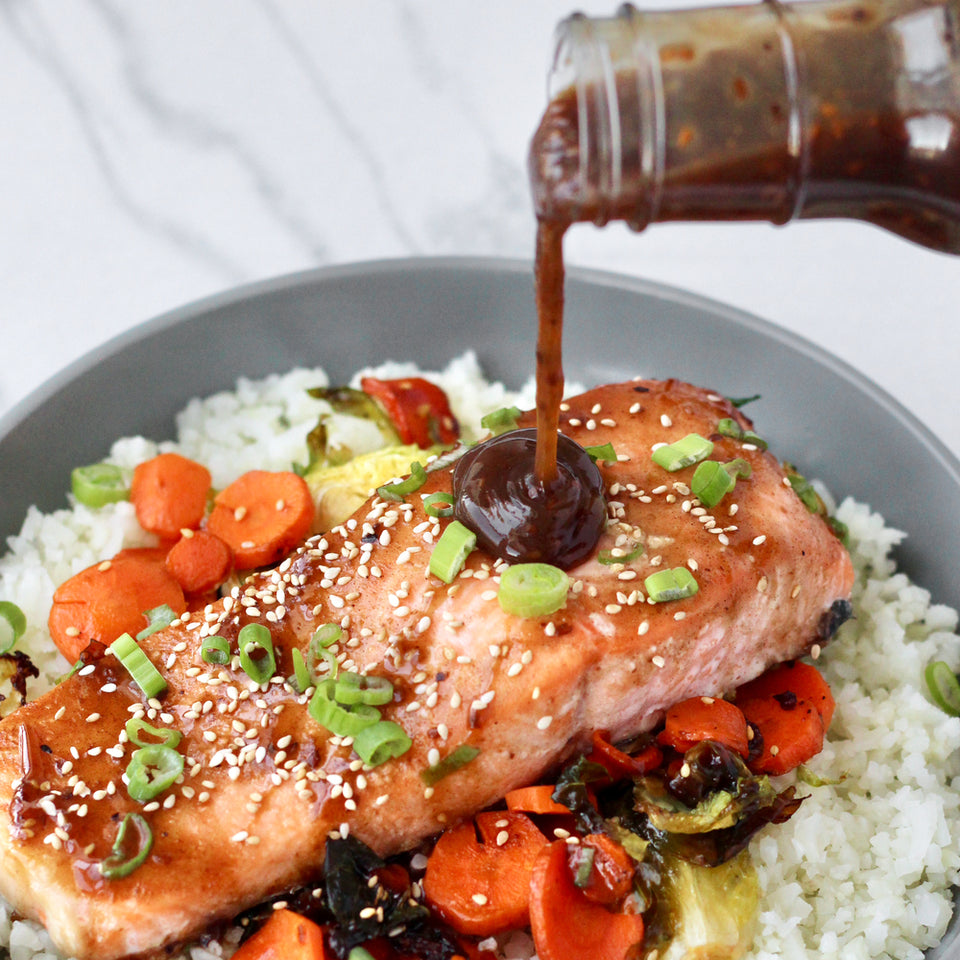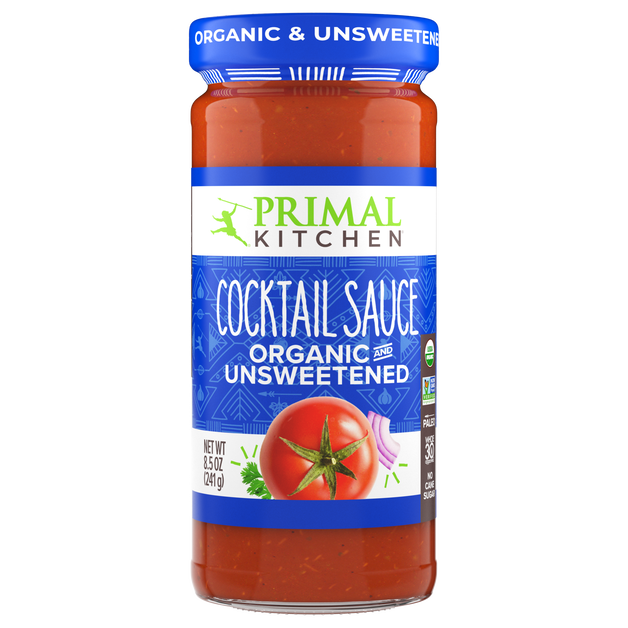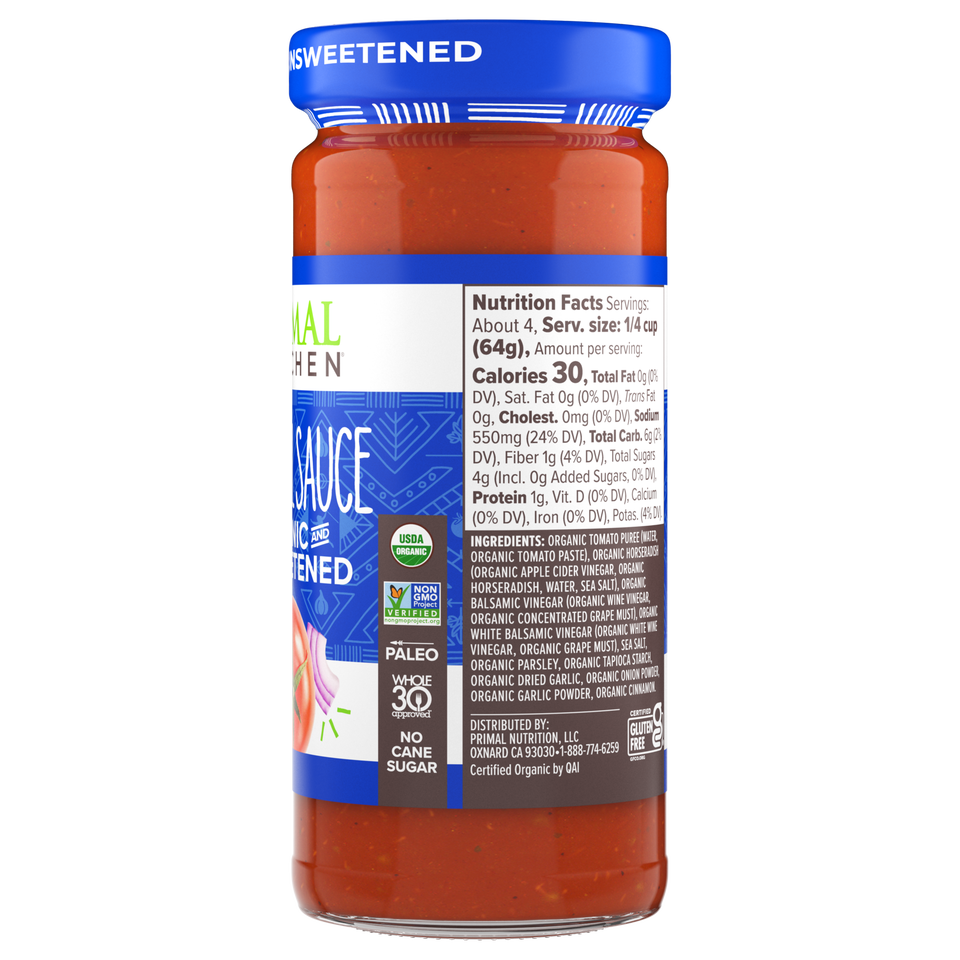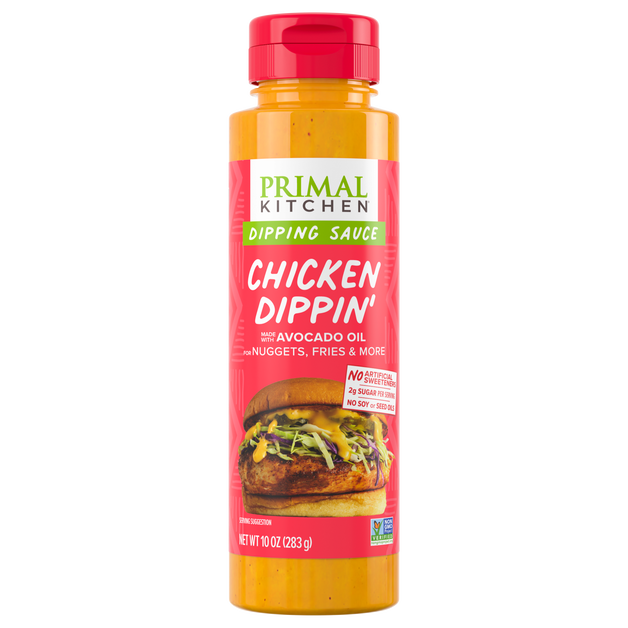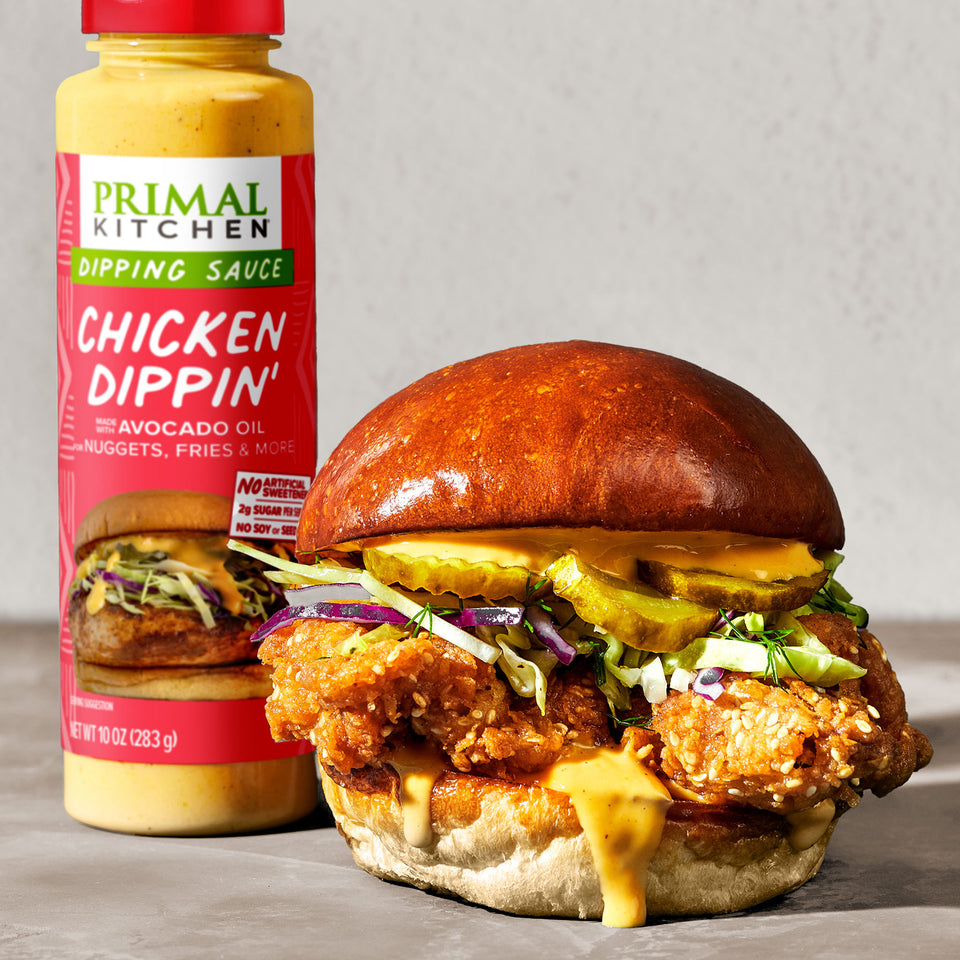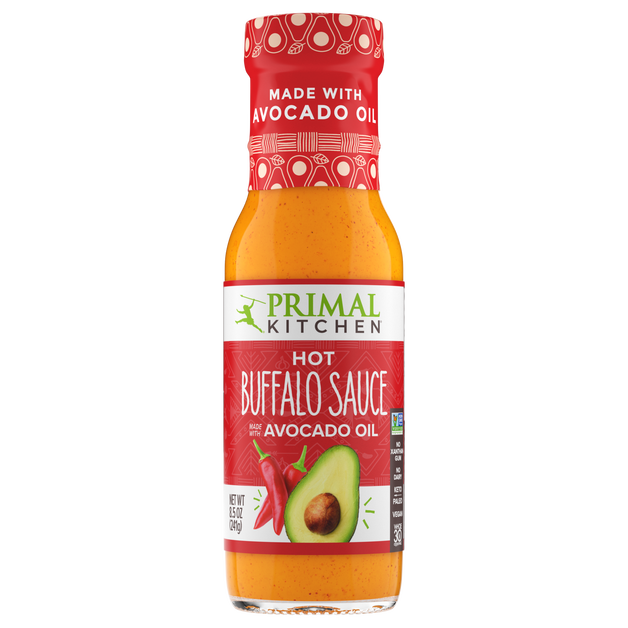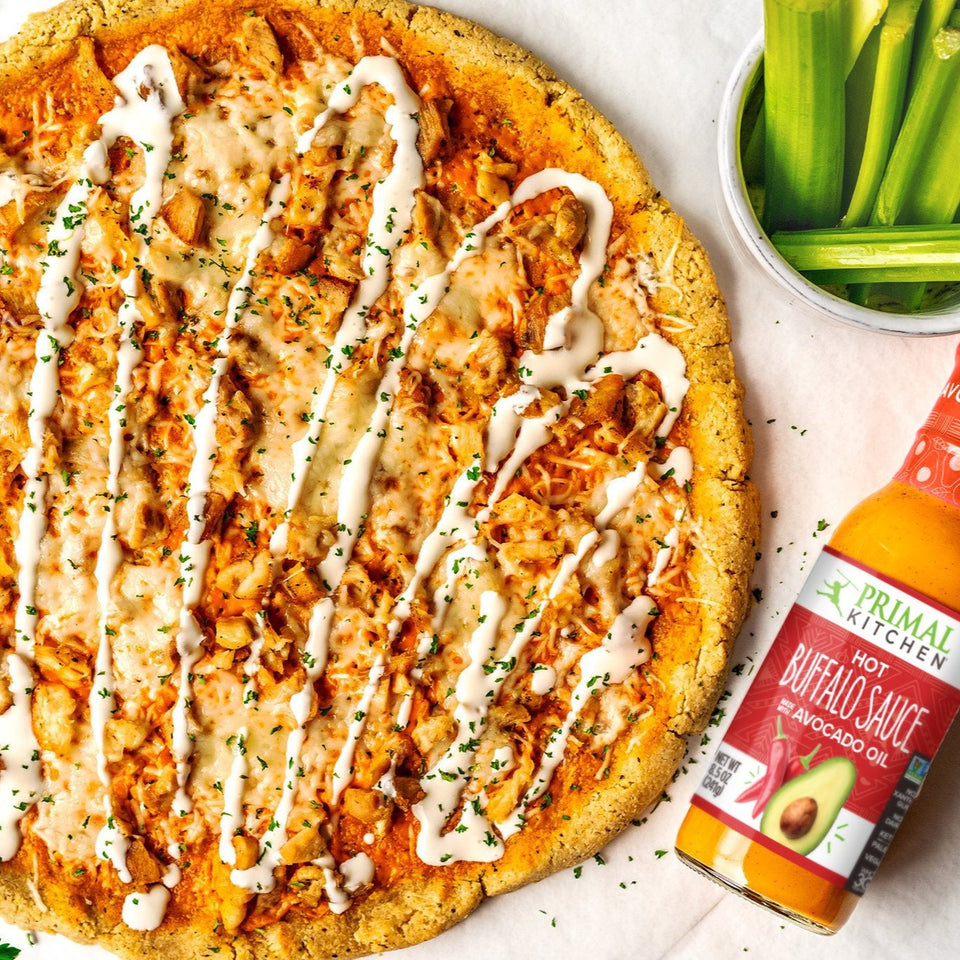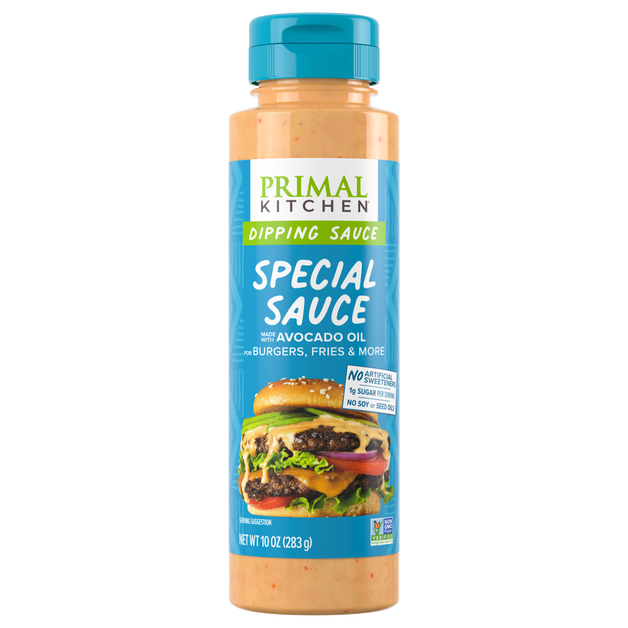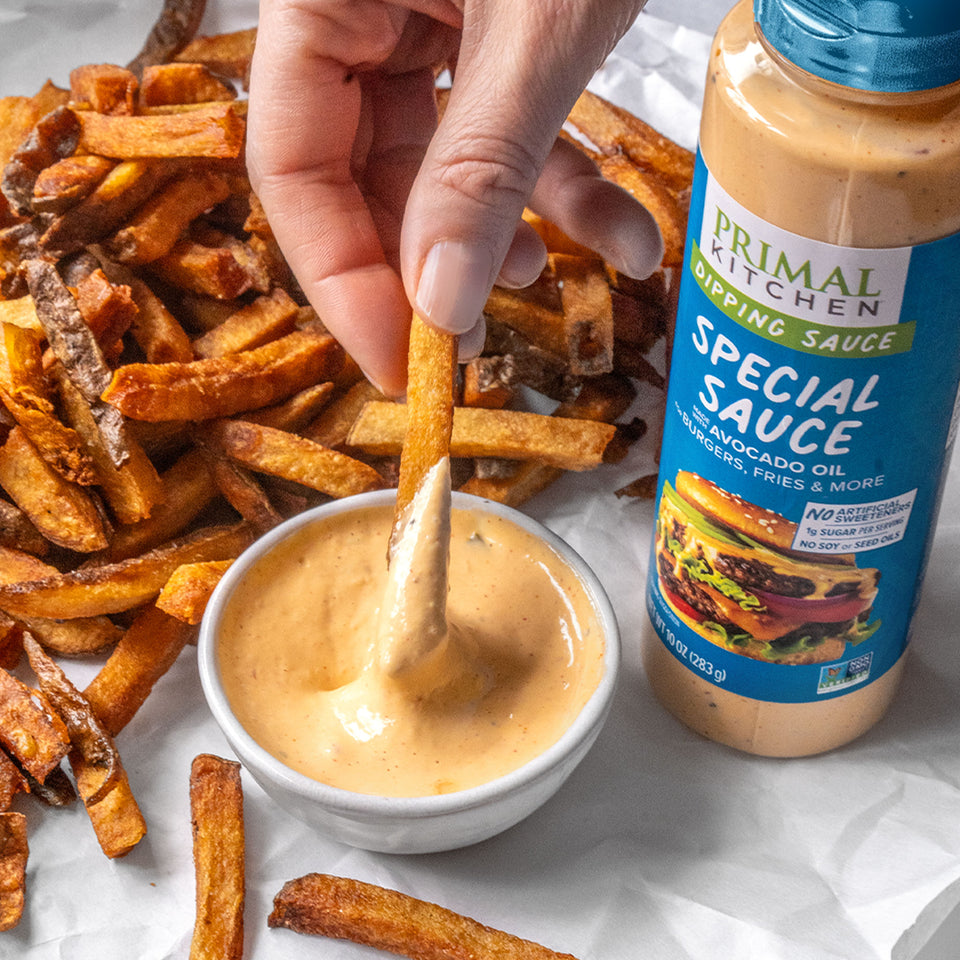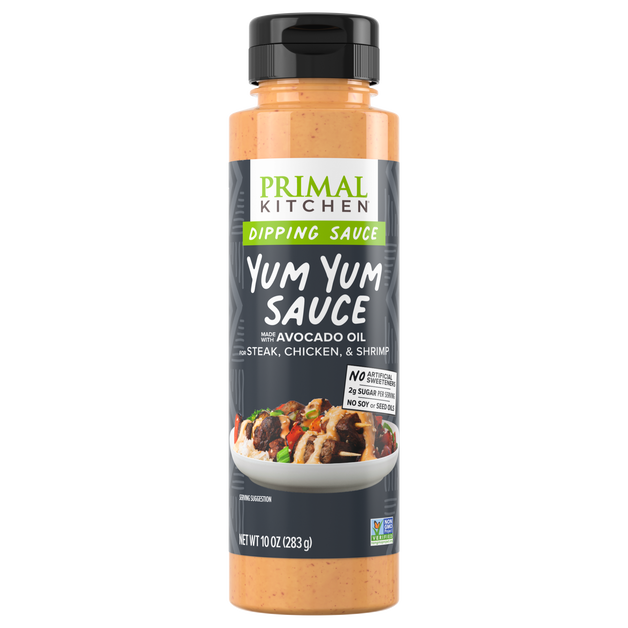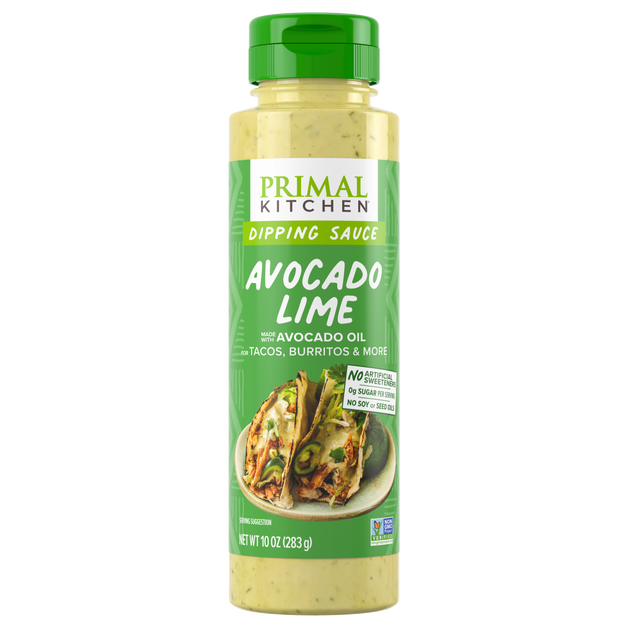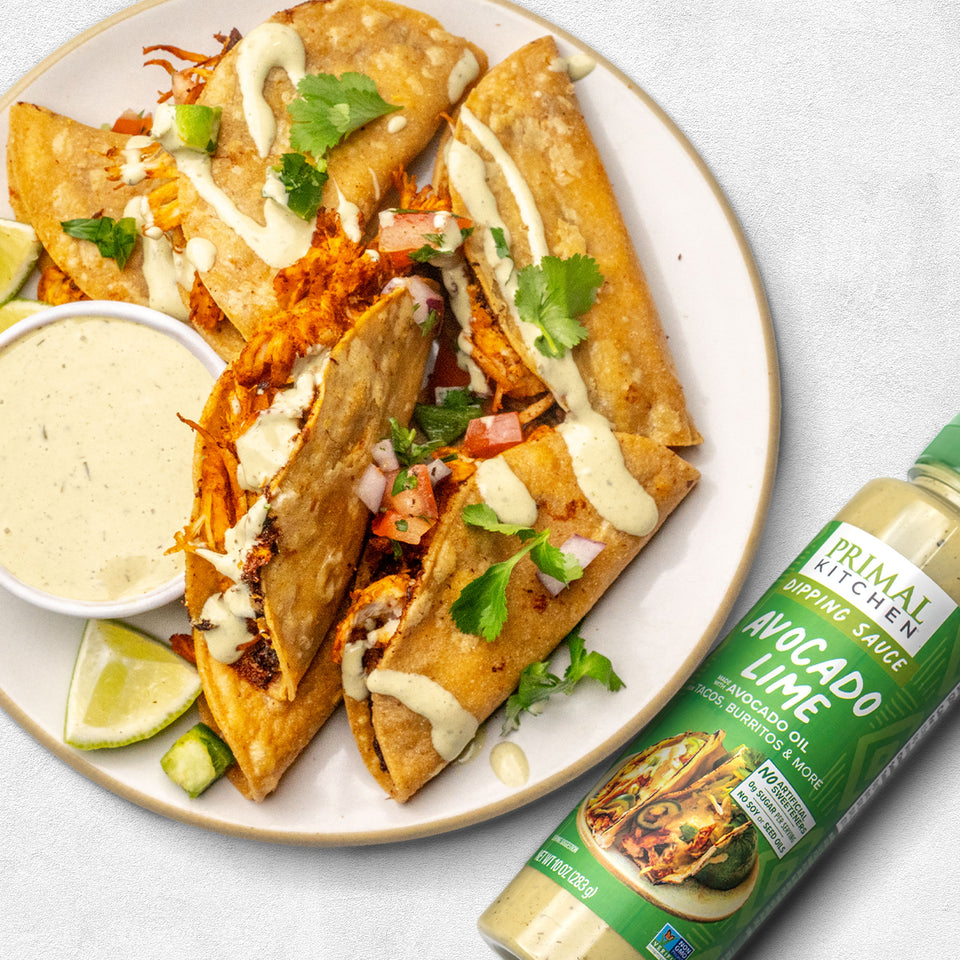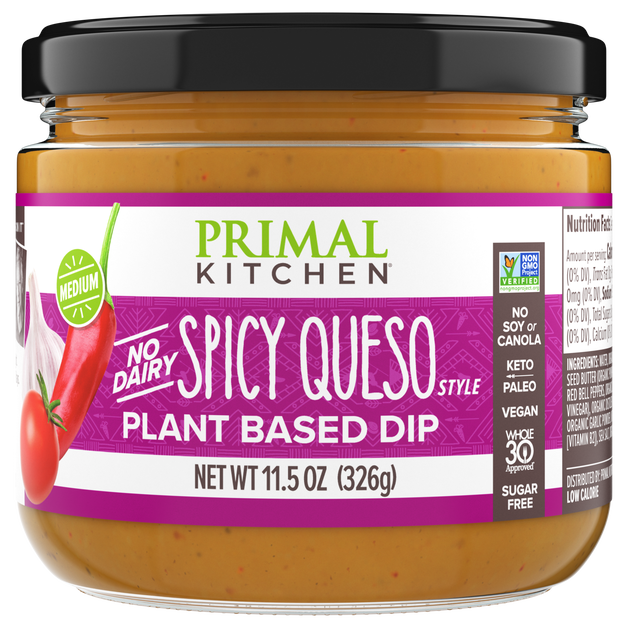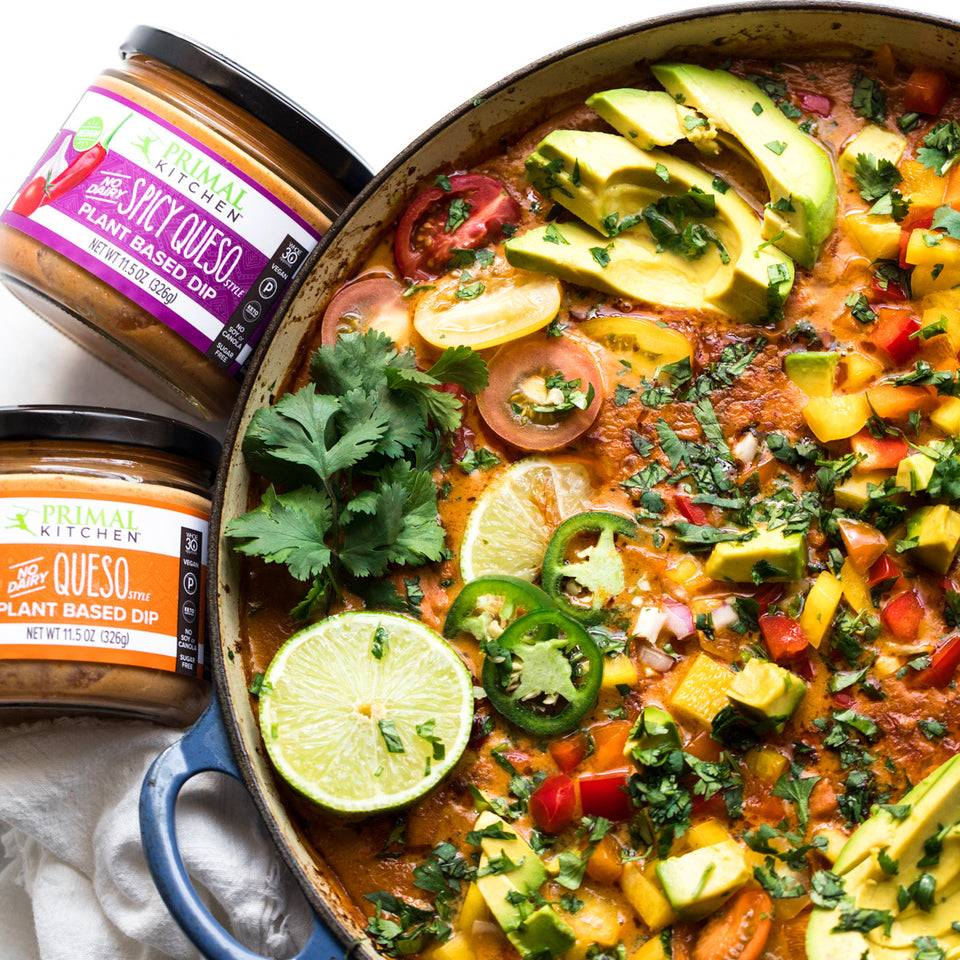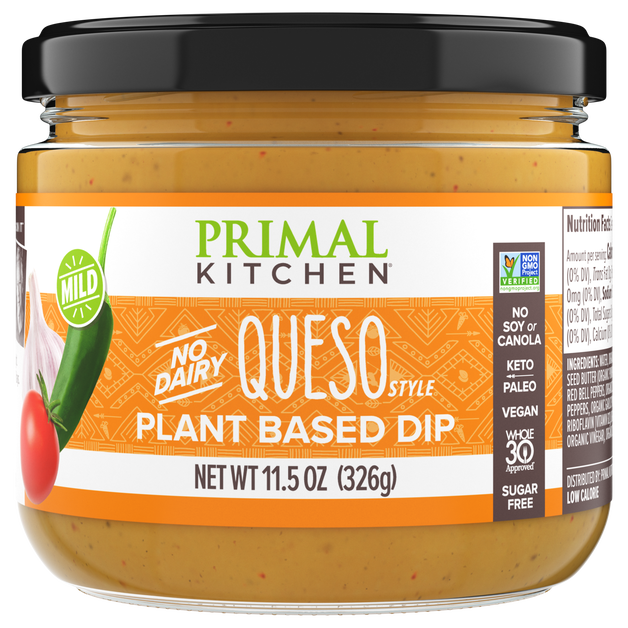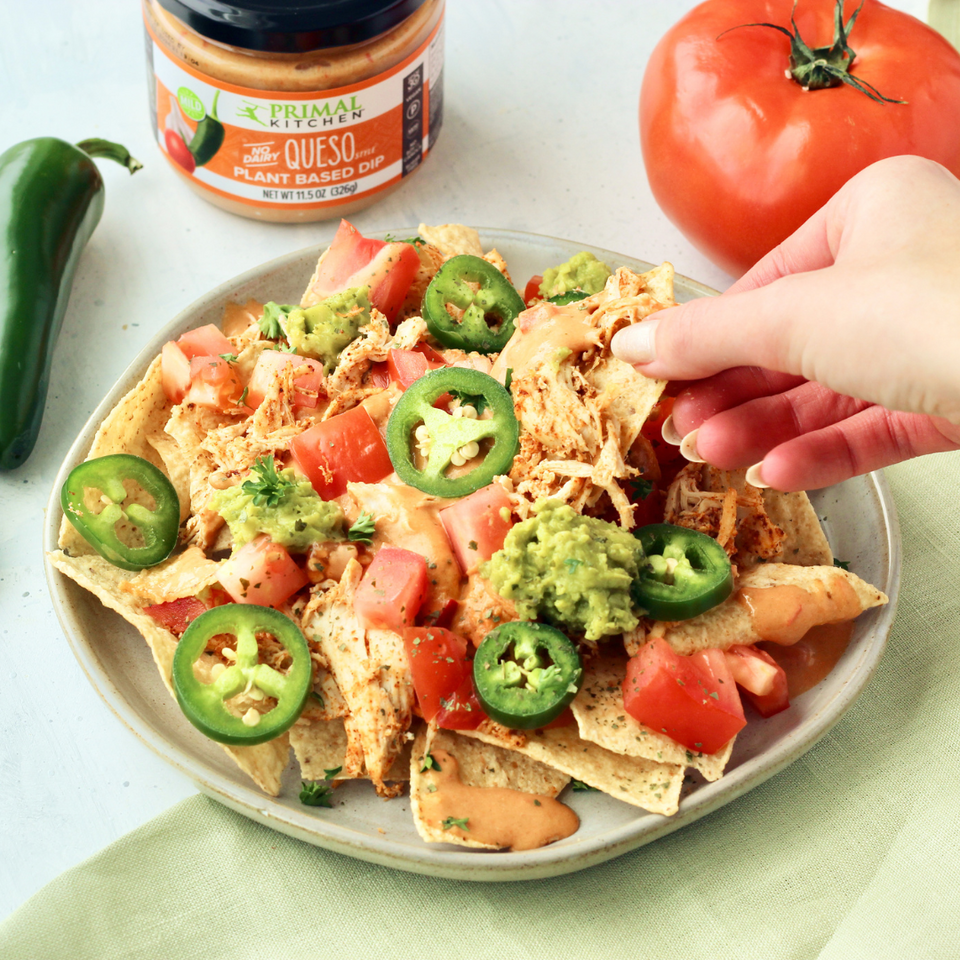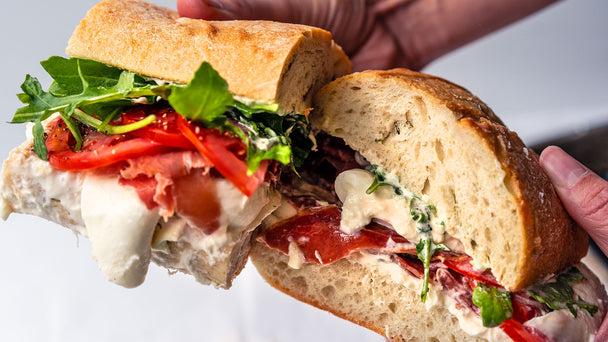If you’ve ever tried making your favorite creamy condiments at home only to find they either pour out in a puddle or firm up like cement, you might wonder how we do it. How do we achieve the perfect consistency when making our creamy, crave-worthy dressings?
First, we have to create the ideal viscosity, meaning each condiment has just the right consistency for pouring or spreading. We also strive for the velvety texture and mouthfeel you expect from a dressing or spread.
Let’s start by looking at how most store-bought condiments get that perfectly pourable or spreadable texture by adding something to their ingredient mix.

What Are Thickeners?
Stabilizers, thickeners, and emulsifiers are additives that affect texture and viscosity, which in turn affects your ability to pour the product. While they may overlap, each of these additive types has a specific function:
- Stabilizers are added to maintain a product's physical and chemical properties, preventing it from changing states (such as a liquid dressing hardening in the fridge). They can also help keep a condiment shelf-stable at room temperature, meaning it would not have to be refrigerated while sealed.
- Thickeners do precisely what the name indicates—make a food product thicker. They increase the viscosity without altering the major properties of the food. For example, thickeners are often added to soups and stews for a more pleasurable mouthfeel, but you wouldn’t want them to negatively alter the taste of the soup.
- Emulsifiers help two ingredients combine that would otherwise not mix well, such as water and oil. Without emulsifiers, a product containing oil and water would separate, and the less dense of the two ingredients (in this example, the oil) would “float” above the rest.
To achieve the right consistency for their product, condiment makers may incorporate one or more of these components.
Types of Thickeners
Not all stabilizers, thickeners, and emulsifiers are created equal. Some are whole food ingredients that could easily be found in your pantry, others are extracted from natural sources, and a third category of additives is created or extensively modified through a process.
Let’s look at some of the thickeners, stabilizers, and emulsifiers commonly used in food products and whether Primal Kitchen has chosen to use or avoid them.

Native Flours and Starches
If you’ve ever prepared homemade gravy or creamy soups before, you’re probably familiar with at least one category of thickener: flours and starches. From traditional wheat flour to nut flour, rice flour, and arrowroot, plant-based flours have been used as thickening agents for centuries. Cornstarch, potato starch, and tapioca (cassava) starch are among the other commonly used thickening agents. Starches like corn flour, potato starch, or tapioca flour can also act as stabilizers, helping to achieve a consistent texture in baked goods.
Flours and starches that have not been modified are called “native” starches. Each native flour or starch will have a slightly different effect on a particular product, so condiment makers typically try several thickeners before selecting one. As with all ingredients, those sensitive to certain crops (such as corn or wheat) should avoid consuming flours or starches derived from that ingredient.
At Primal Kitchen, we prefer using native starches rather than synthetic or heavily modified ones to create products with the dreamy texture and thickness you crave. While we typically avoid starches made from products on the Big 9 Allergens list, such as wheat or corn, our ingredient guardrails do allow for other starches like tapioca and potato.
Plant-Based Gums
There are two types of gums commonly found in food products: those derived from a natural plant-based source and those that are produced by bacteria. Without getting too technical, plant-based gums from natural sources are typically extracted from a plant’s seeds, roots, or fruit and turned into a finely ground powder or gel that can be used as a food additive.
Gums act as emulsifiers, helping to bring all the ingredients together in harmony. Gums can also stabilize and thicken a product, depending on factors such as the type of gum used, the quantity, and the product’s other ingredients. Gums from natural sources include guar gum, tamarind seed gum, konjac gum, gum arabic, and carob bean gum.
Xanthan Gum and Other Bacterial Gums
Some gums are produced through bacterial fermentation—similar to the process of making wine or cheese. Popular gums using this method include gellan gum and xanthan gum, the latter of which is made by combining carbohydrates with the bacteria Xanthomonas campestris found on certain leafy vegetables. The carbs “feed” on the bacteria and excrete a polysaccharide (in this case, xanthan gum) as a byproduct. As part of our ingredient guardrails, Primal Kitchen does not use xanthan gum or gellan gum, preferring instead to use plant-based gums such as tamarind seed gum or konjac gum.
Lecithins
Lecithins are a category of phospholipids—a type of fatty substance naturally found in certain plants and animal products. One of the most common is soy lecithin, which is found in various processed foods, including chocolate. Lecithins are extracted from foods such as sunflower seeds, soy, rapeseed, and egg yolks and are used as a thickener and emulsifier to bind ingredients together. At Primal Kitchen, we prefer using alternatives to soy lecithin, as soy is one of the Big 9 allergens.
Carrageenan
Derived from red seaweed, carrageenan is commonly used to make dairy products, pudding mixes, soups, sauces, and even some non-dairy milk alternatives. While the National Organic Standards Board (NOSB) recommended prohibiting the use of carrageenan in organic foods in 2016, it is currently FDA-approved for use in organic and non-organic products. Out of an abundance of caution, we do not use carrageenan in Primal Kitchen products.
Modified Food Starches
Ingredients like modified food starch and modified cellulose are starches that have been altered chemically, physically, or through the use of enzymes. These changes are designed to increase their effectiveness as a food additive. Familiar sources of modified food starch include corn, wheat, tapioca, and potato.
Physically modified starches are considered “clean label starches” and do not need to be labeled as modified—they can even be organic products! Potato starch that is physically (but not chemically) modified, for example, is used in some Primal Kitchen products.
Caseinates
Caseinates are a specific type of protein derived from milk that functions as an emulsifier. To make caseinate, pasteurized skim milk is separated and processed into a powder that can be used in making food products. Several types of edible caseinate, including sodium caseinate, calcium caseinate, and potassium caseinate, are used in food and supplement manufacturing. Primal Kitchen does not currently use caseinates in our products.

Our Commitment to Quality
Primal Kitchen is dedicated to bringing you quality ingredients and delicious flavor without compromise. We put people over profit! That’s why we’ll continue to thicken and stabilize our products with ingredients from natural sources rather than artificial ones.
Because they are whole food ingredients or derived from whole food ingredients without extensive modification, stabilizers from natural sources are more closely aligned with a Primal lifestyle.
We also strive to be inclusive with our delicious products so everyone can enjoy them. When we use a thickener to achieve that classic texture you know and love, we prefer gluten-free and unmodified options such as arrowroot, tapioca starch, or potato protein.
Many of our products are free from wheat, soy, and dairy—simply look on the label for our ingredients and certifications. A wide variety of Primal Kitchen sauces, condiments, and dressings are also Certified Gluten-Free by the GFCO (Gluten-Free Certification Organization), Keto Certified, and Certified Paleo.
Food Knowledge is Power
Thickeners, stabilizers, and emulsifiers play an important role in the texture and mouthfeel of your favorite sauces and dressings. By understanding the differences between additives from natural sources and artificial additives, you can make the right choices for yourself and your family.
So, the next time you enjoy a spoonful of our velvety mayo or drizzle one of our luscious dressings over your favorite salad, you can savor each bite, knowing that it's crafted with care using top-tier ingredients. At Primal Kitchen, we're committed to giving you that perfect pour and spread every time without compromising quality or taste.
